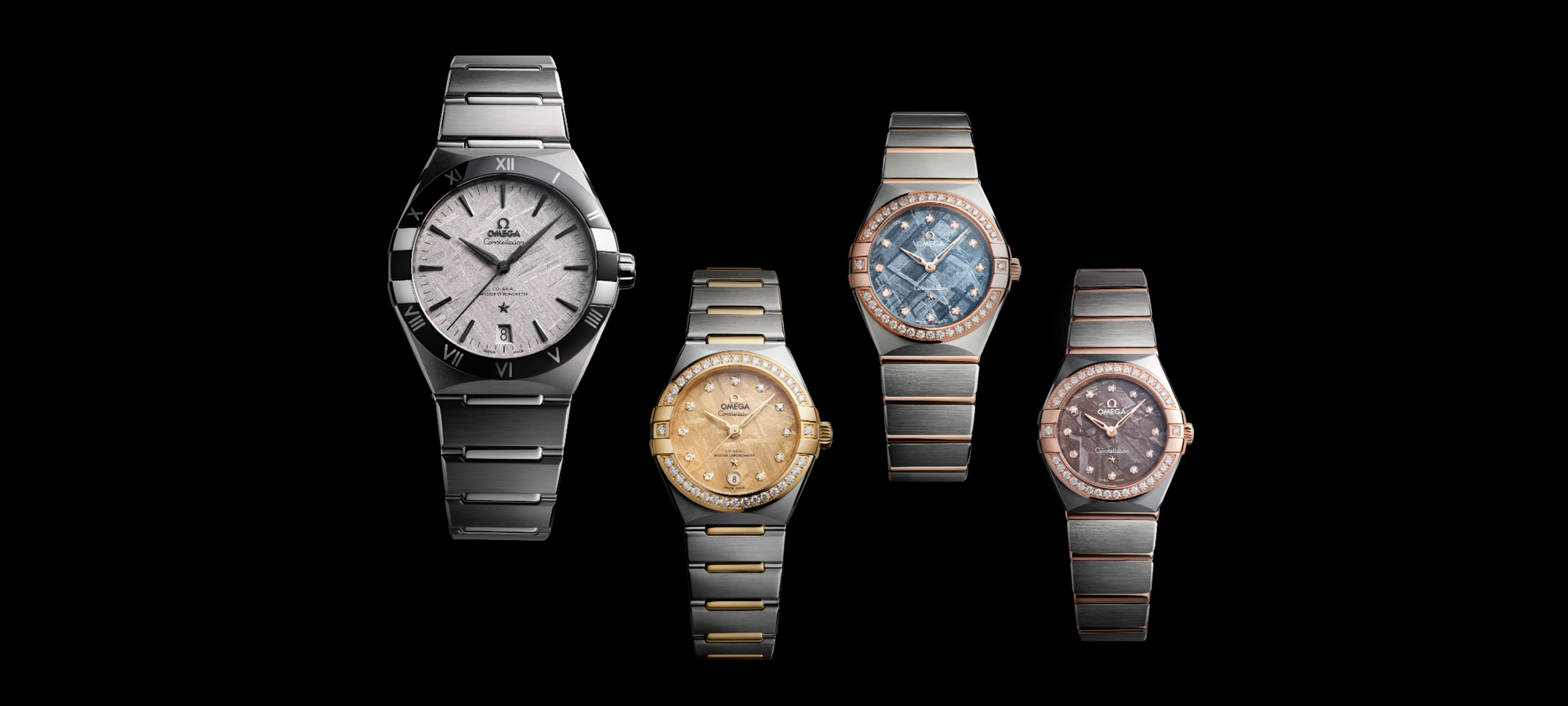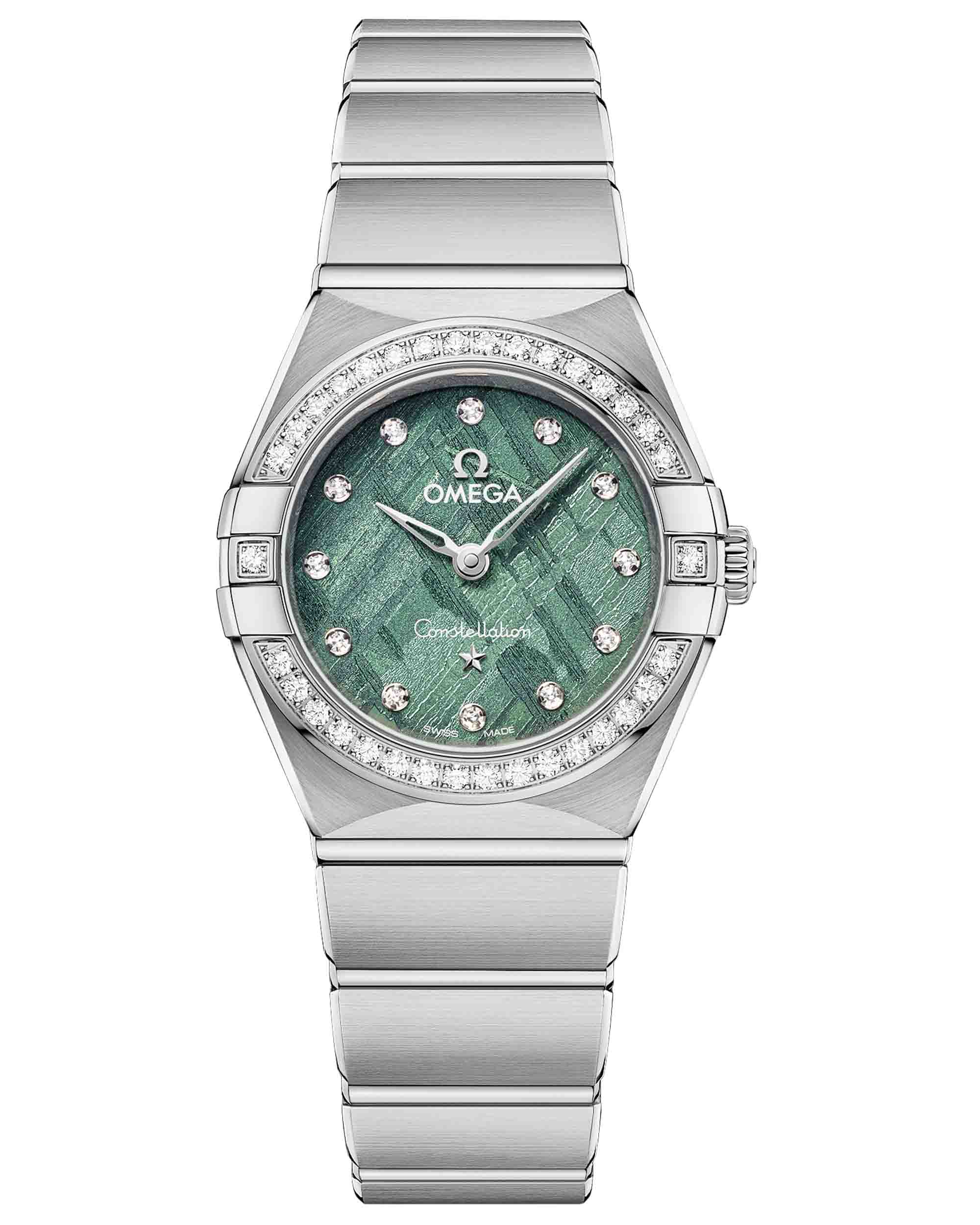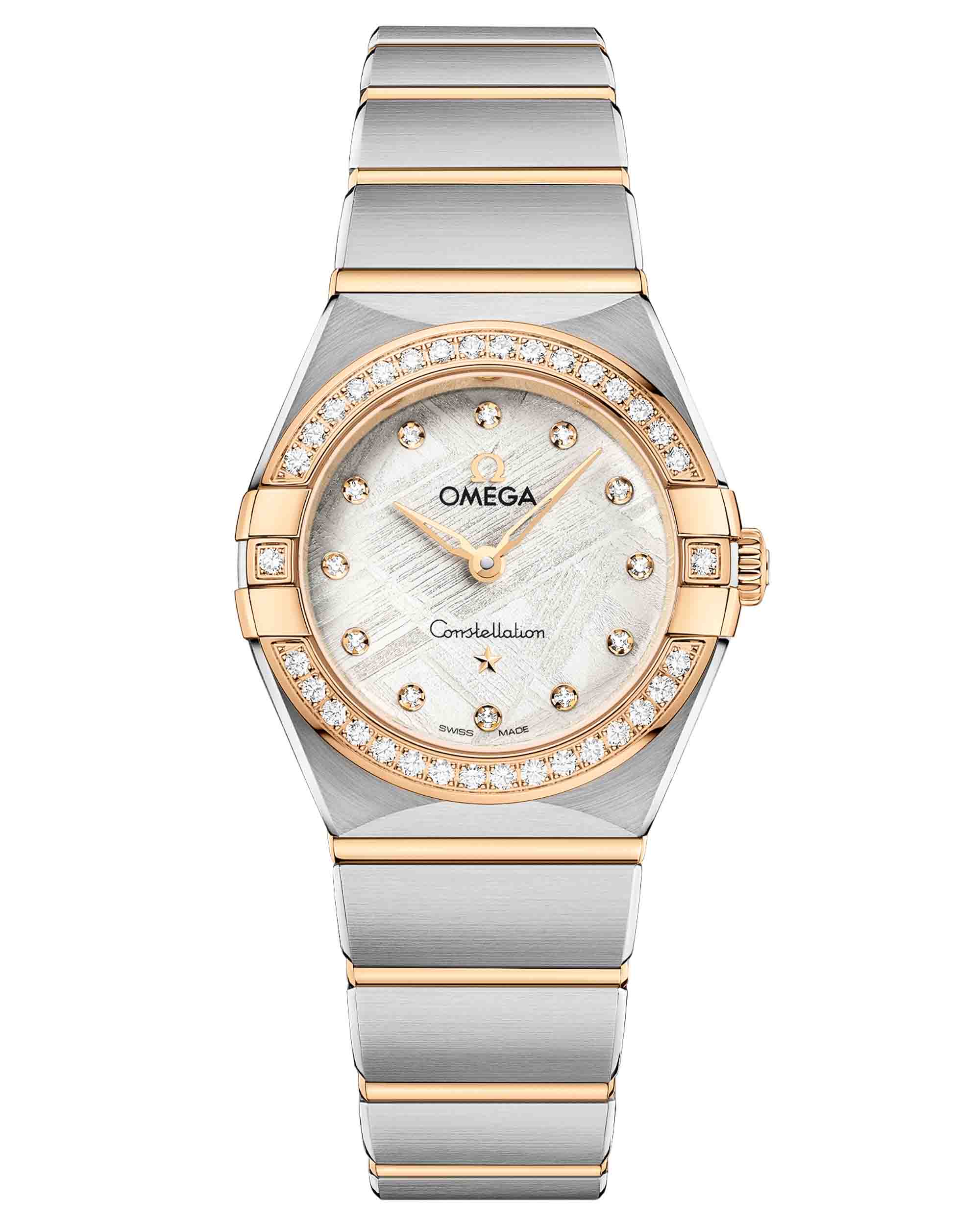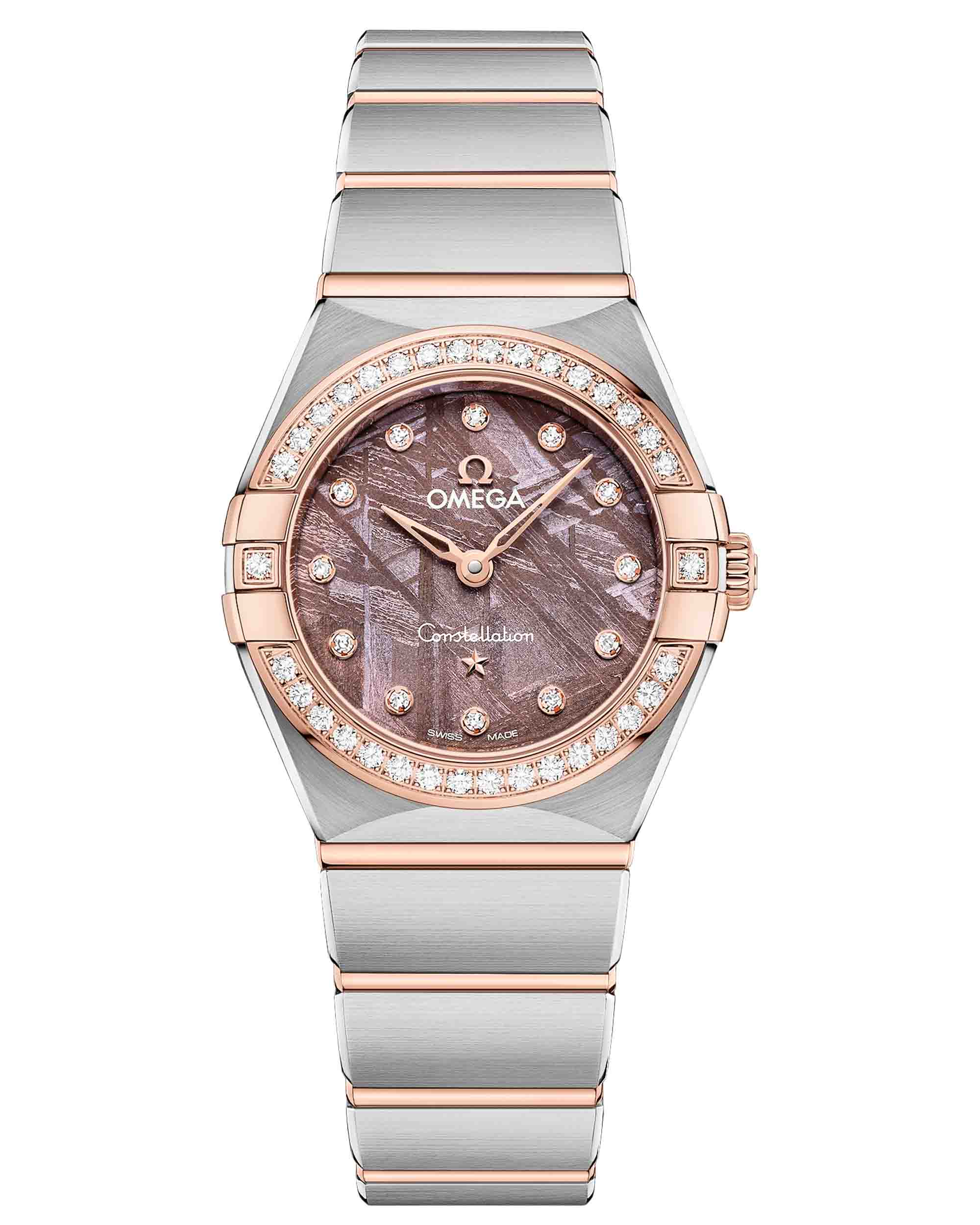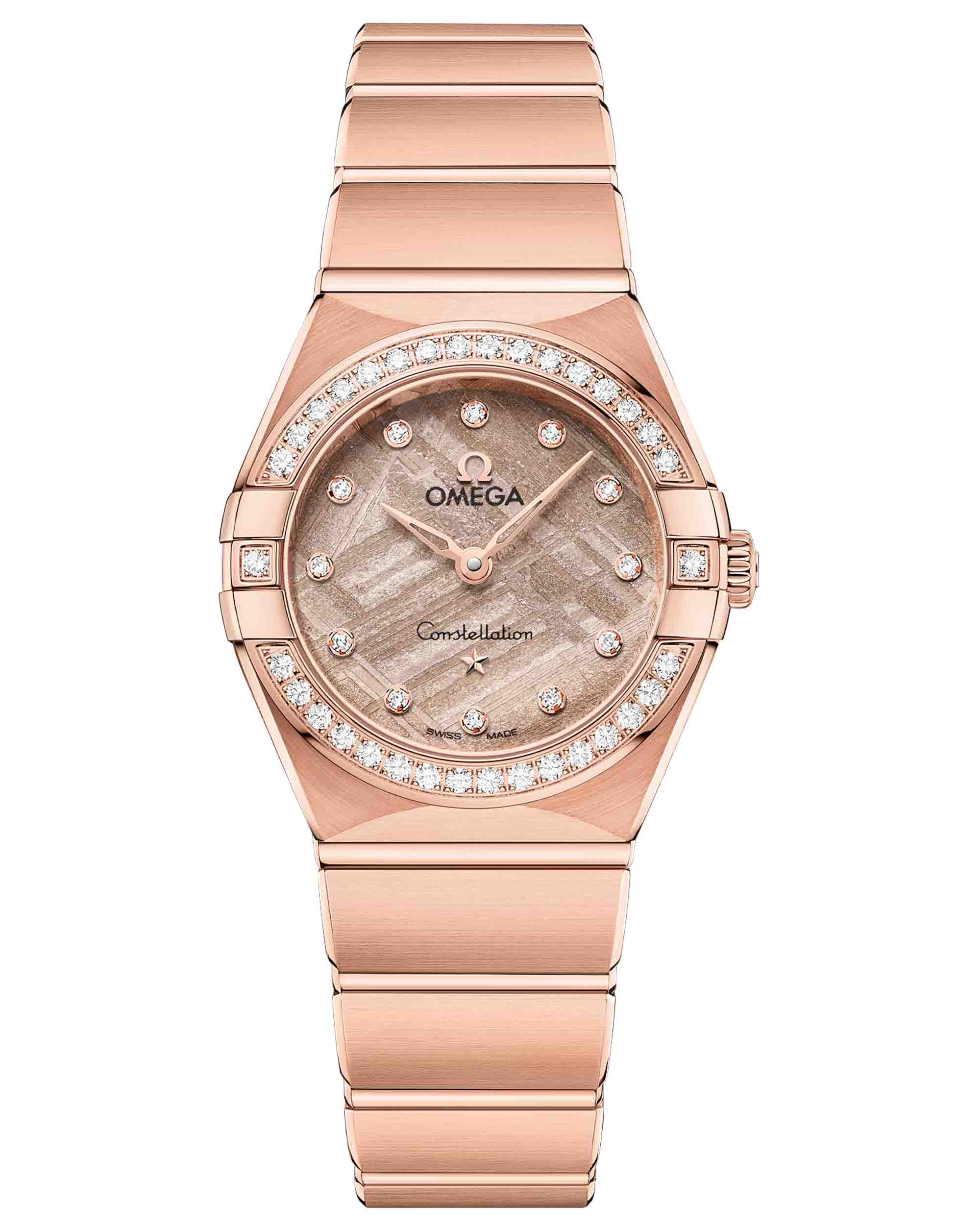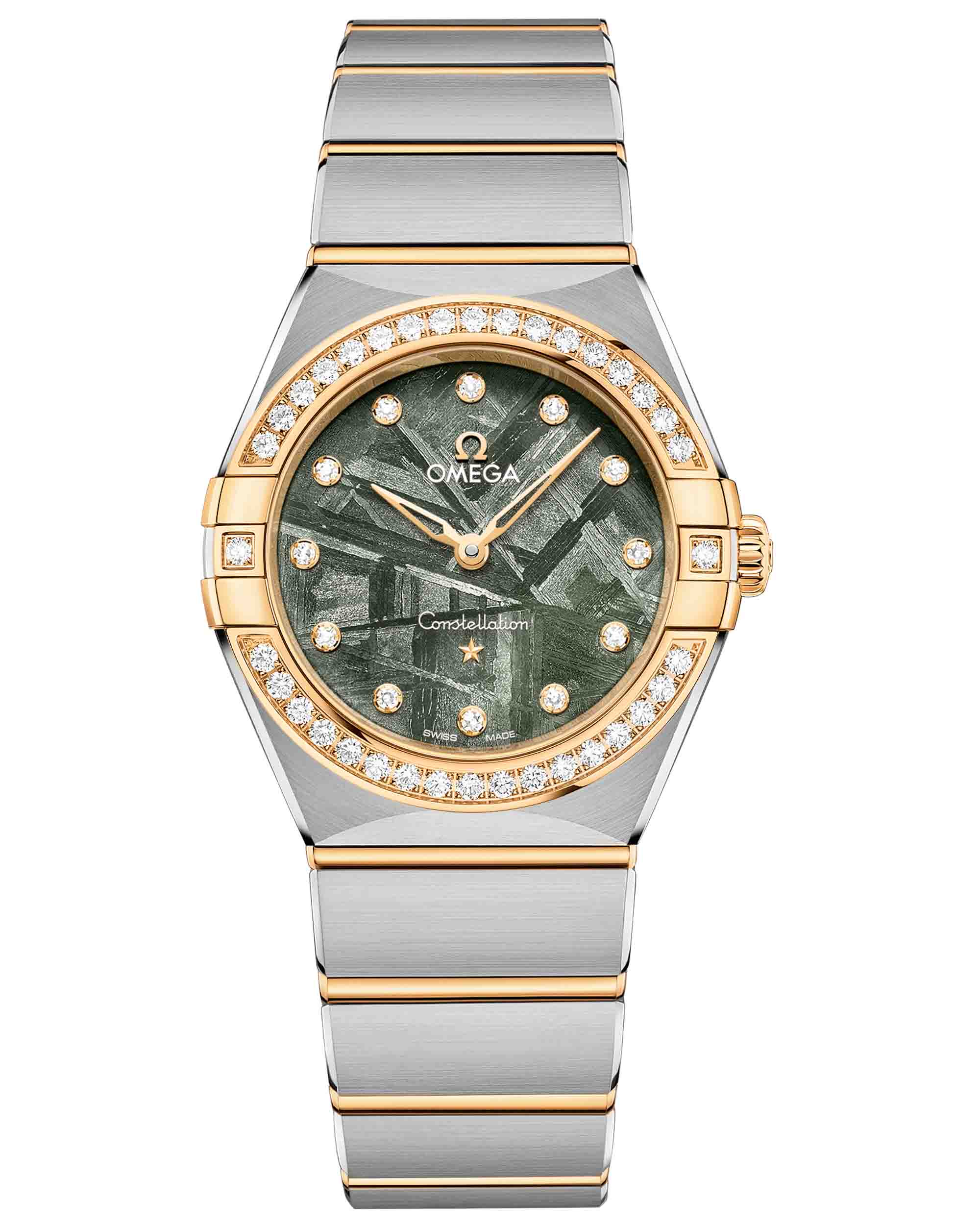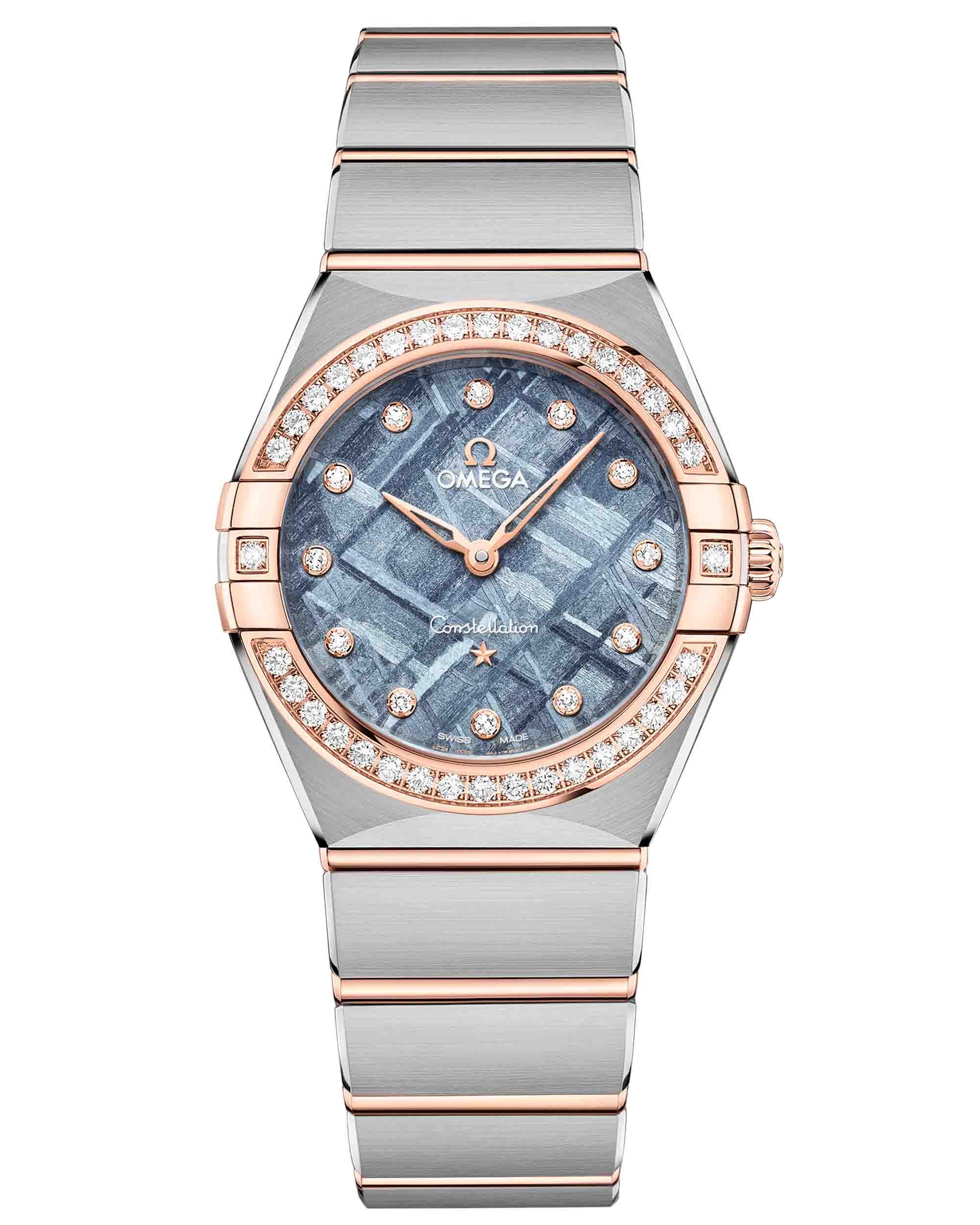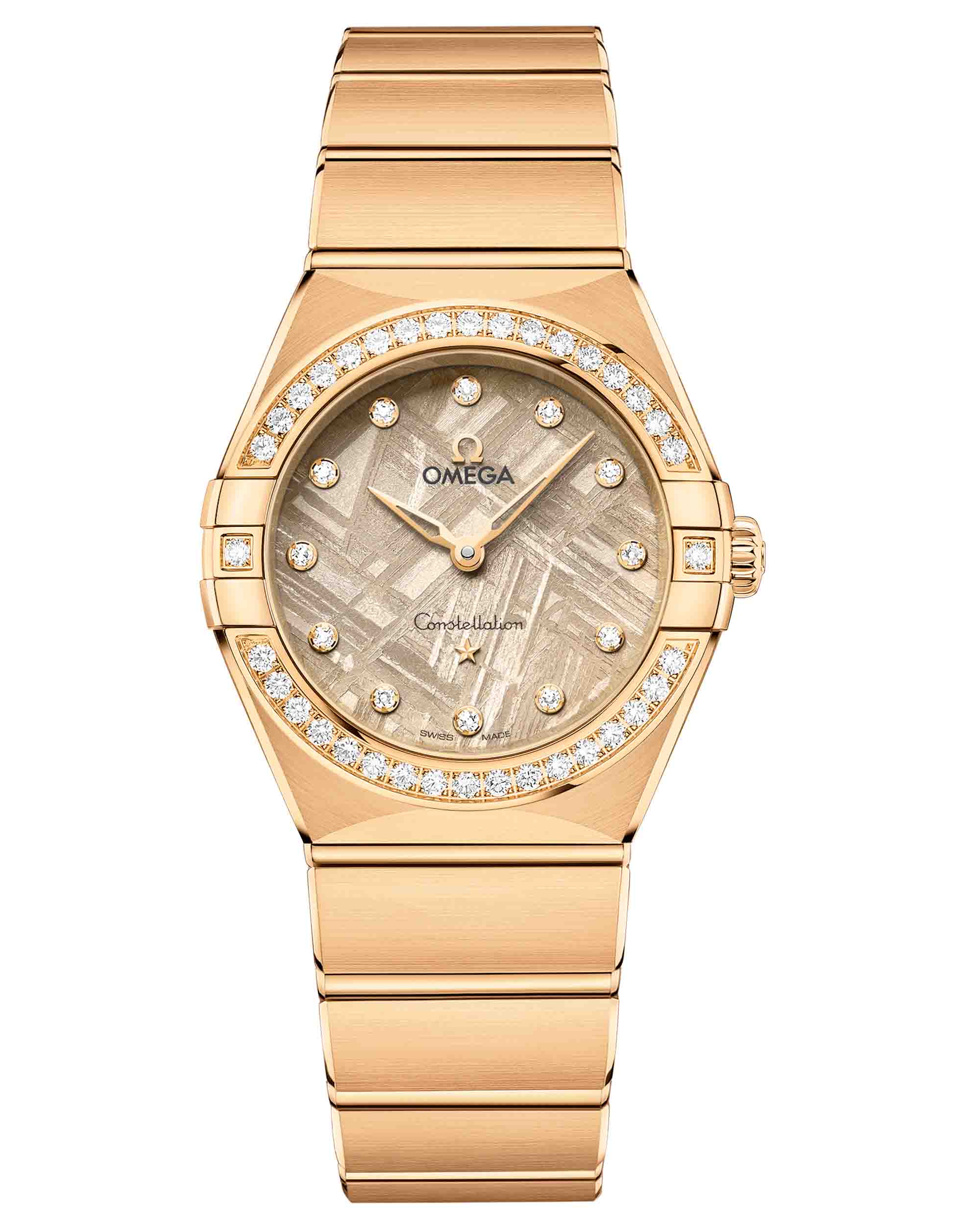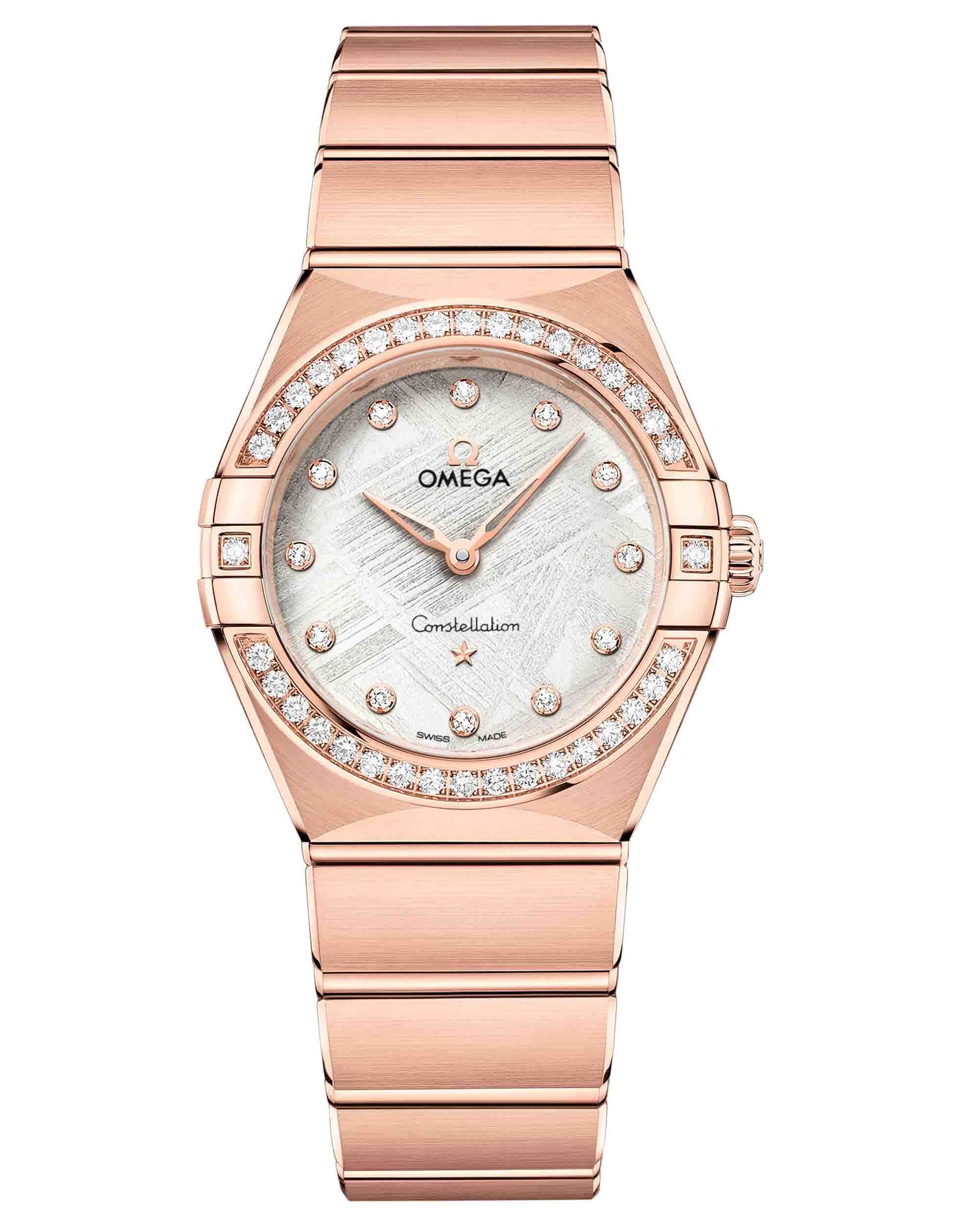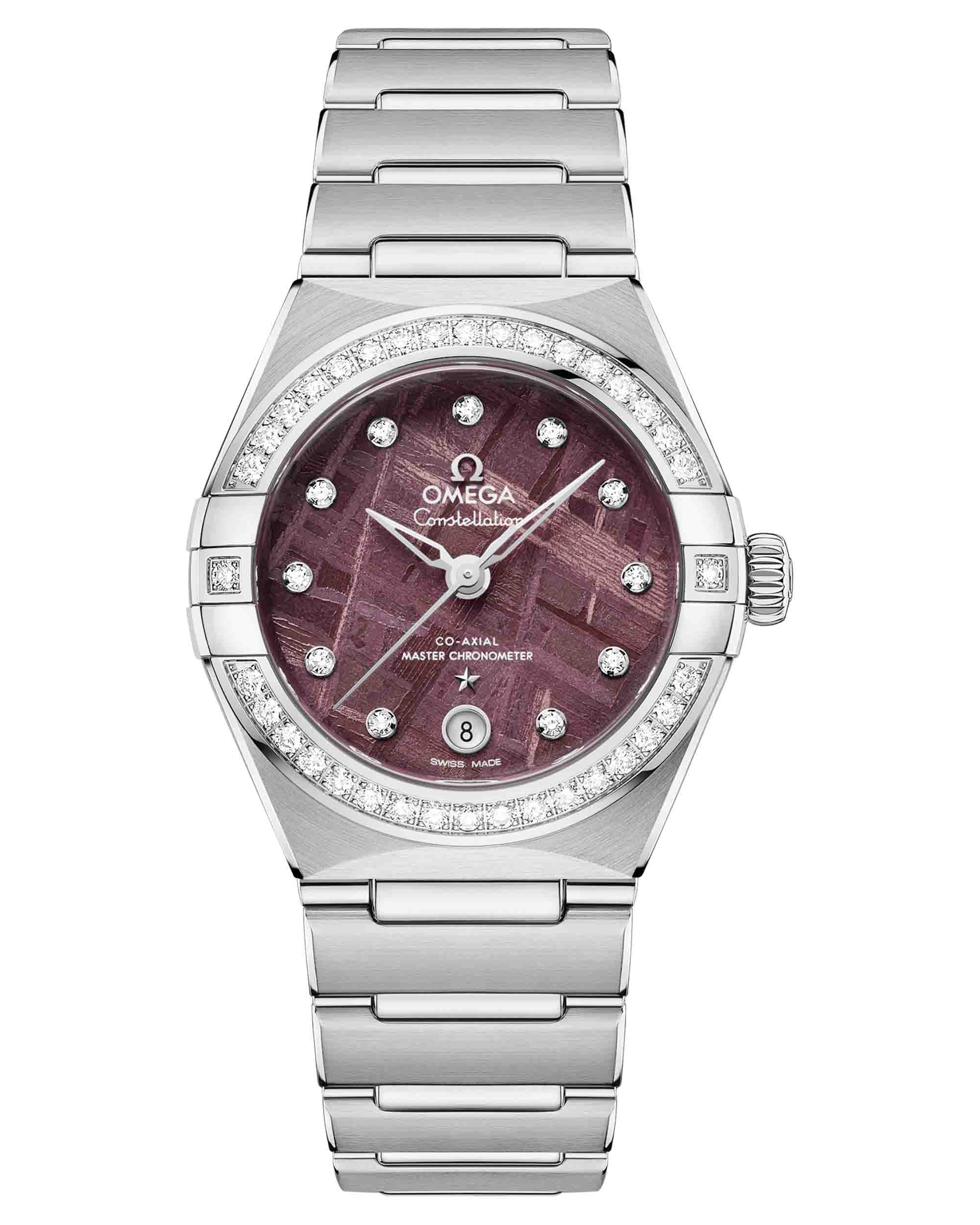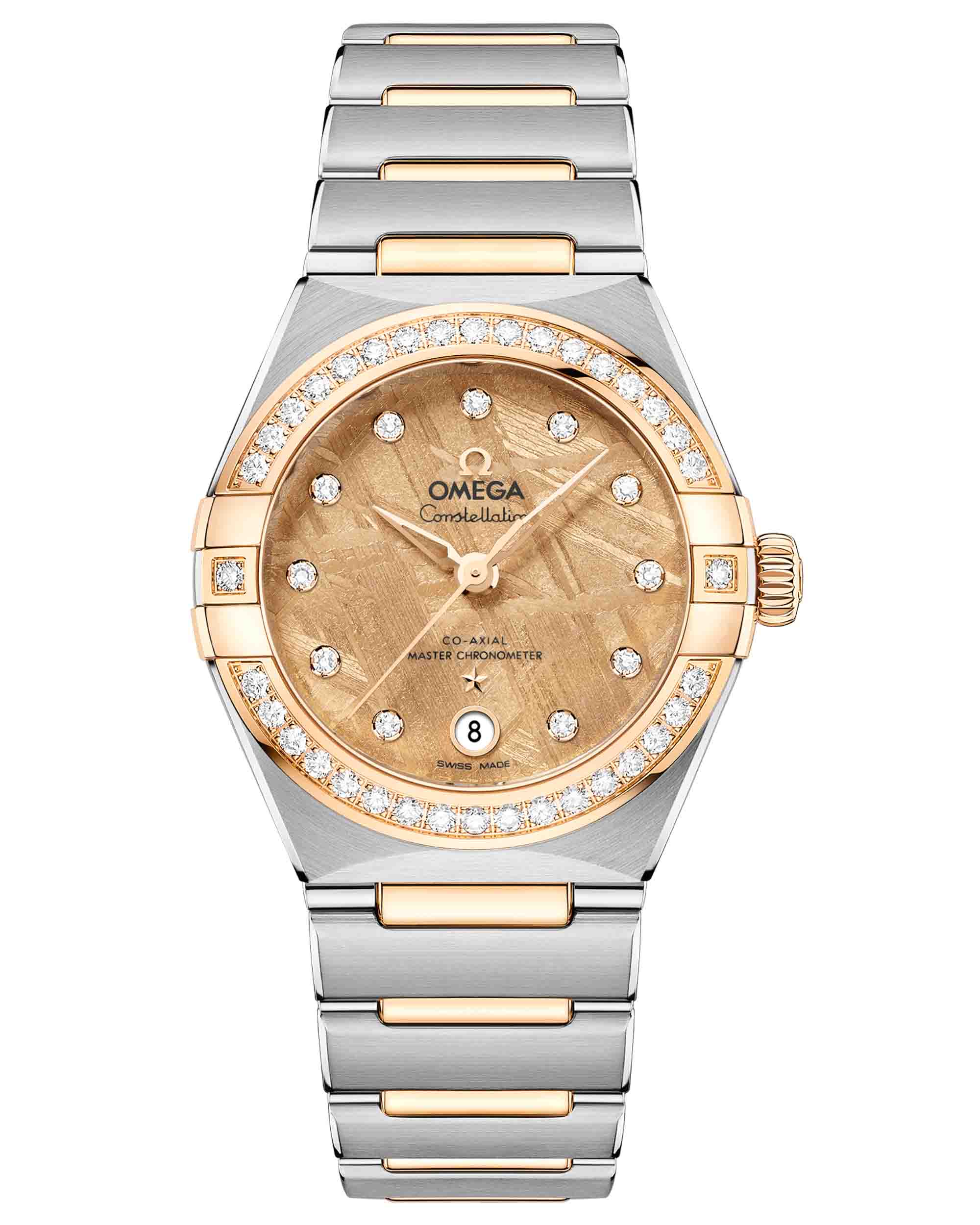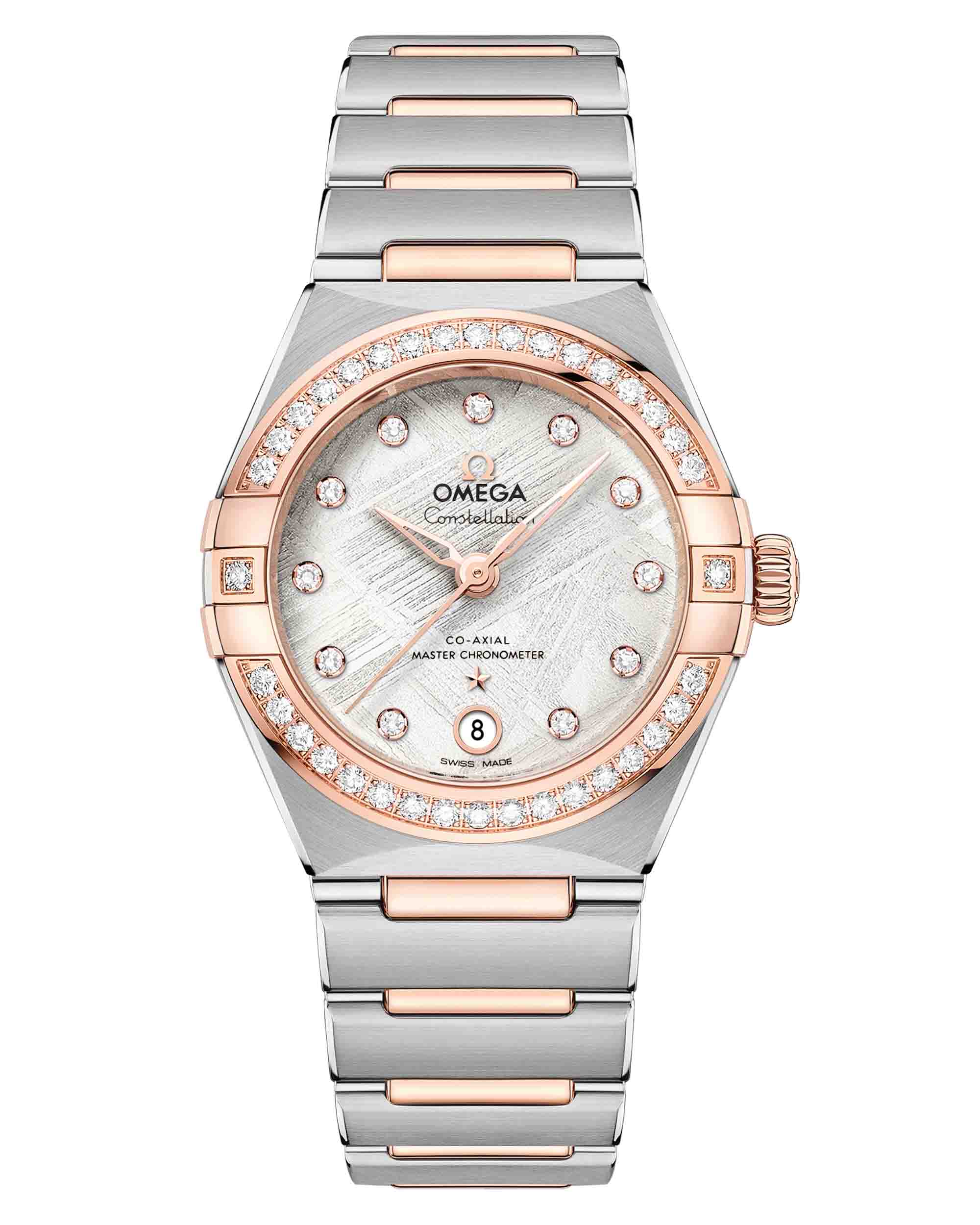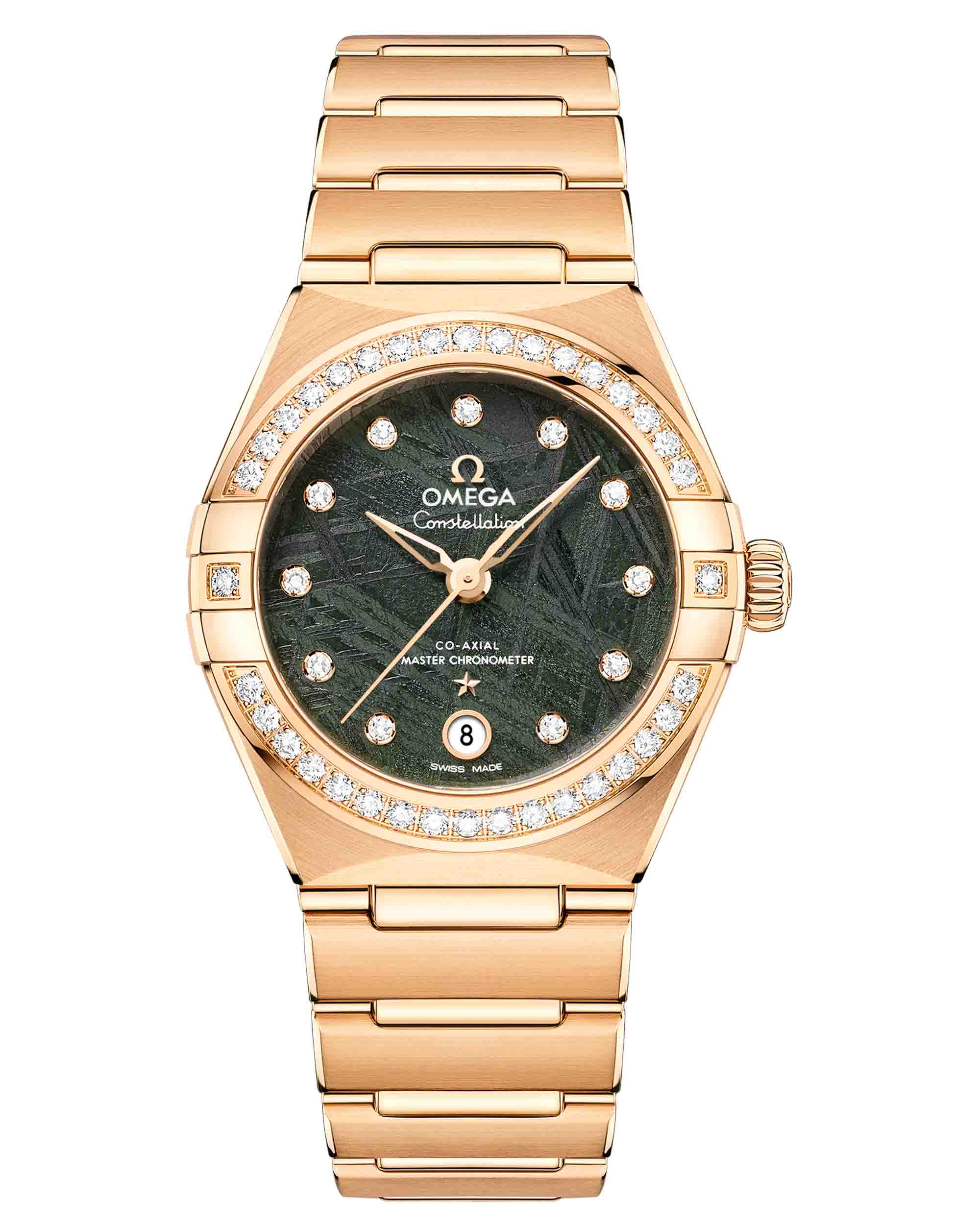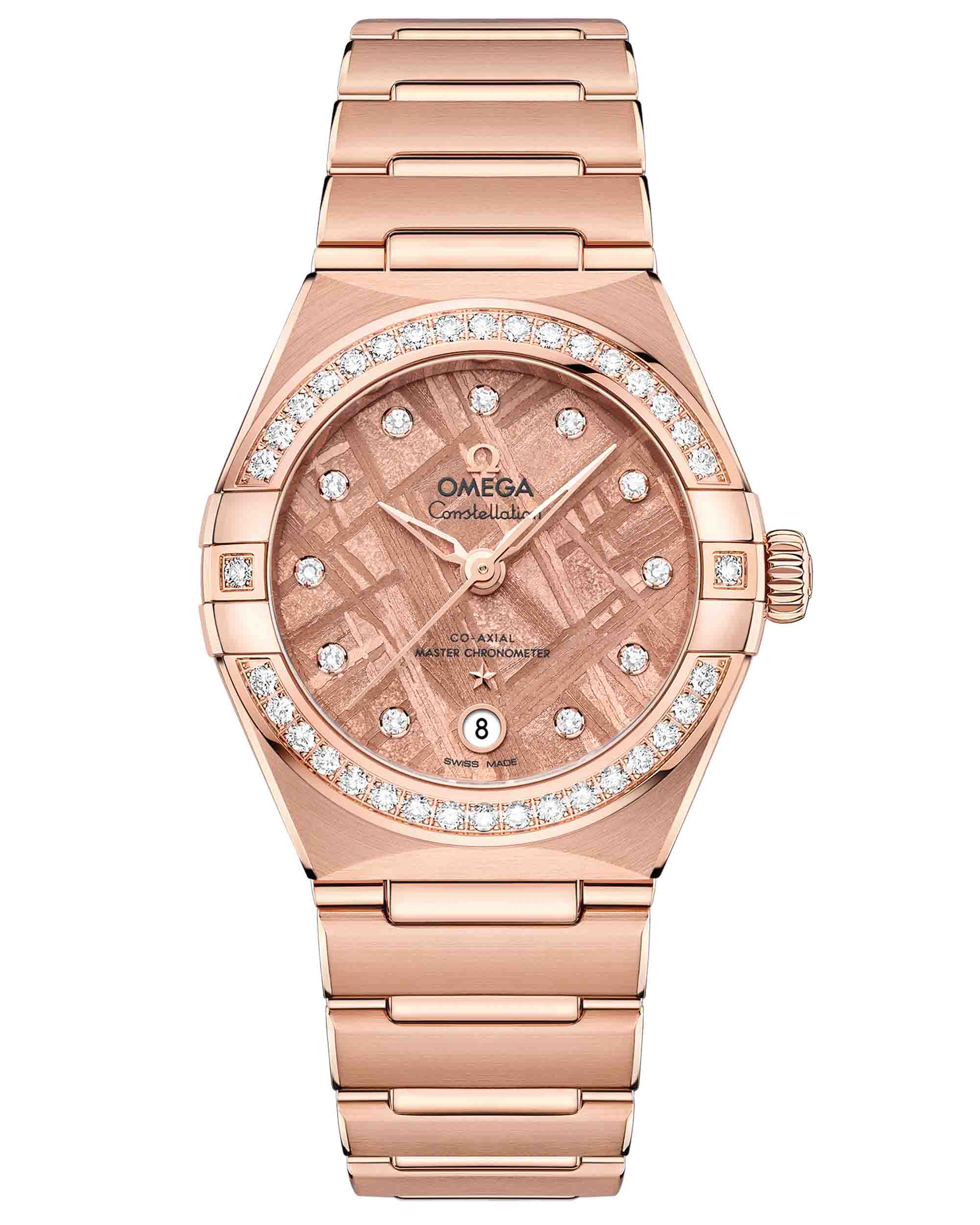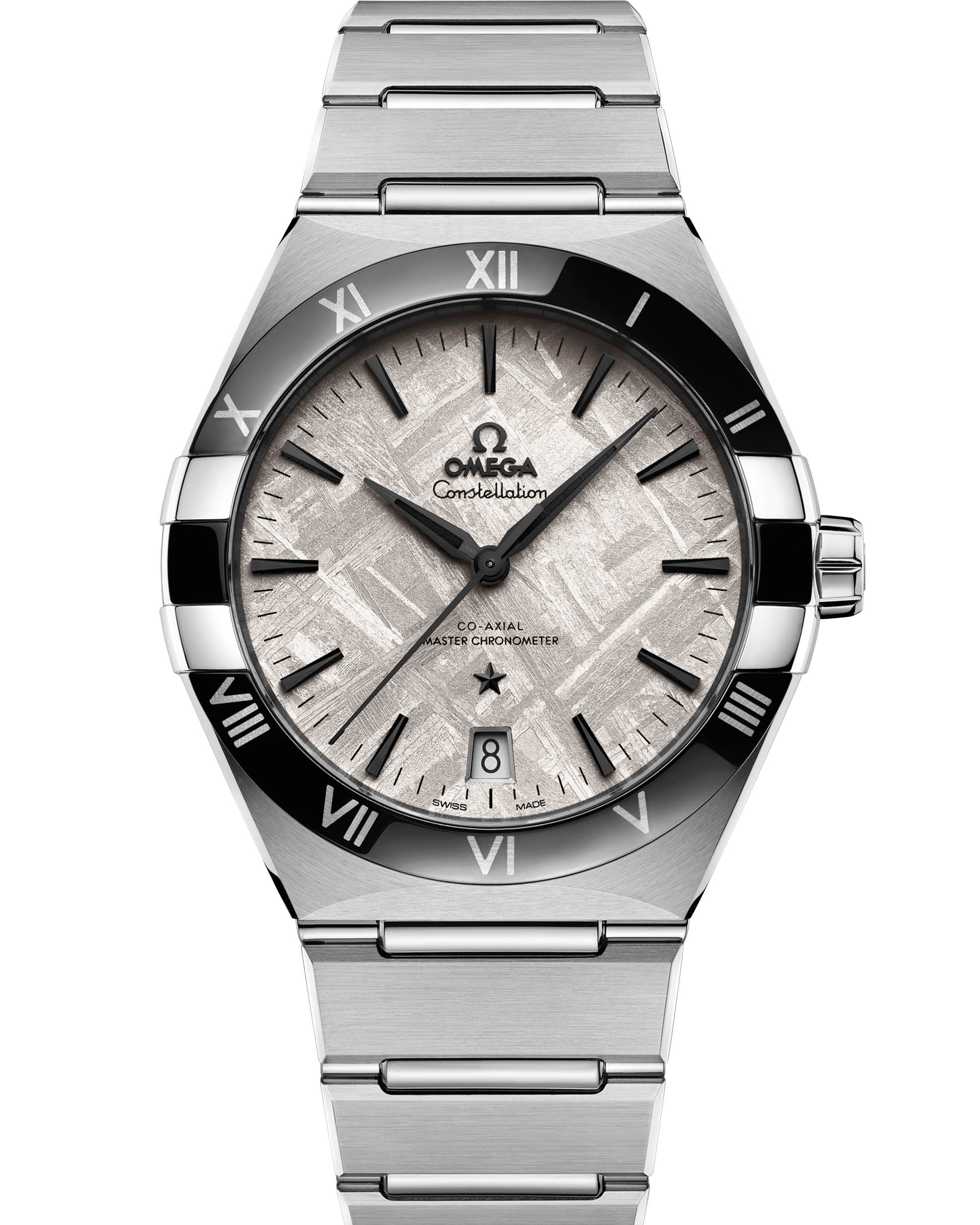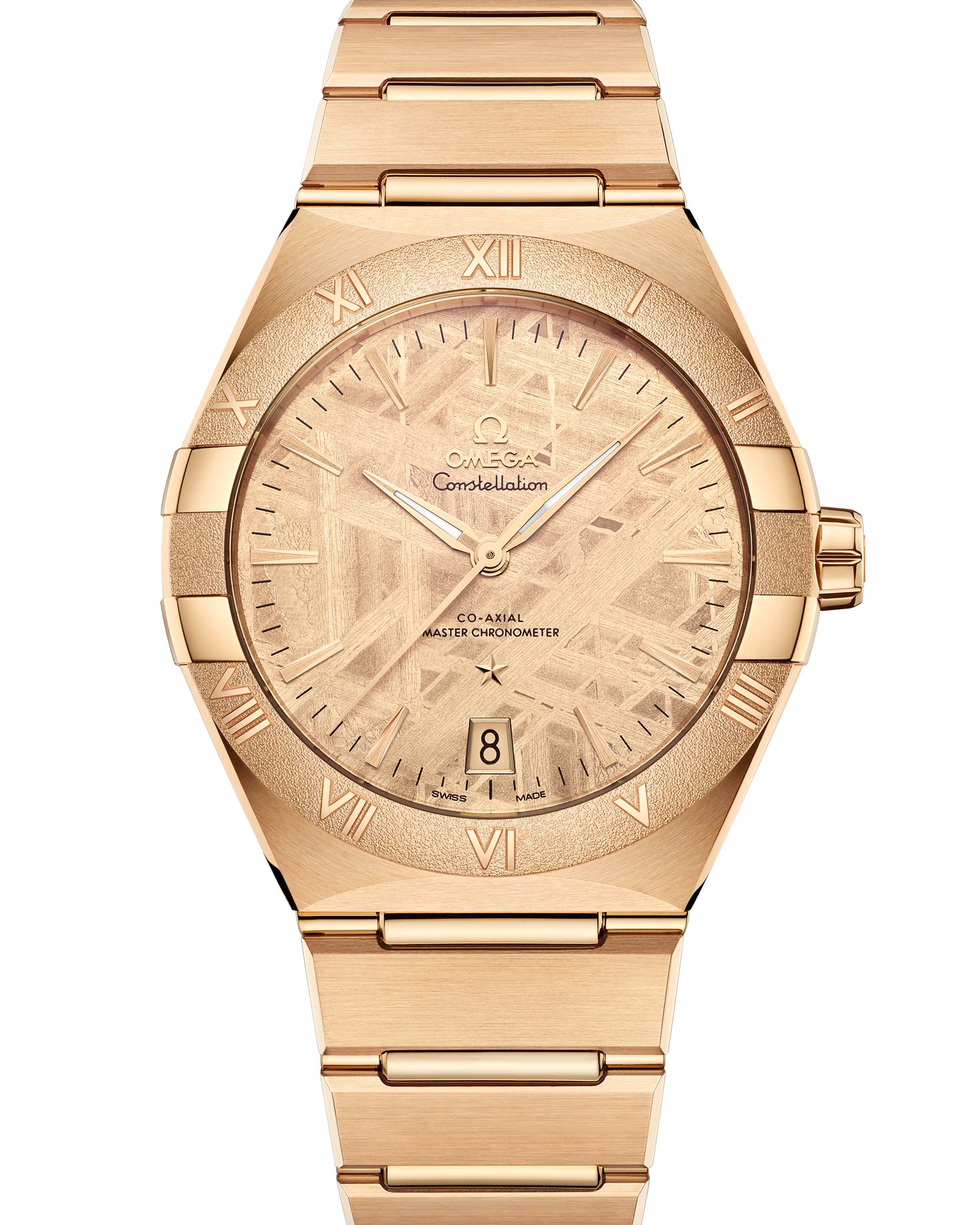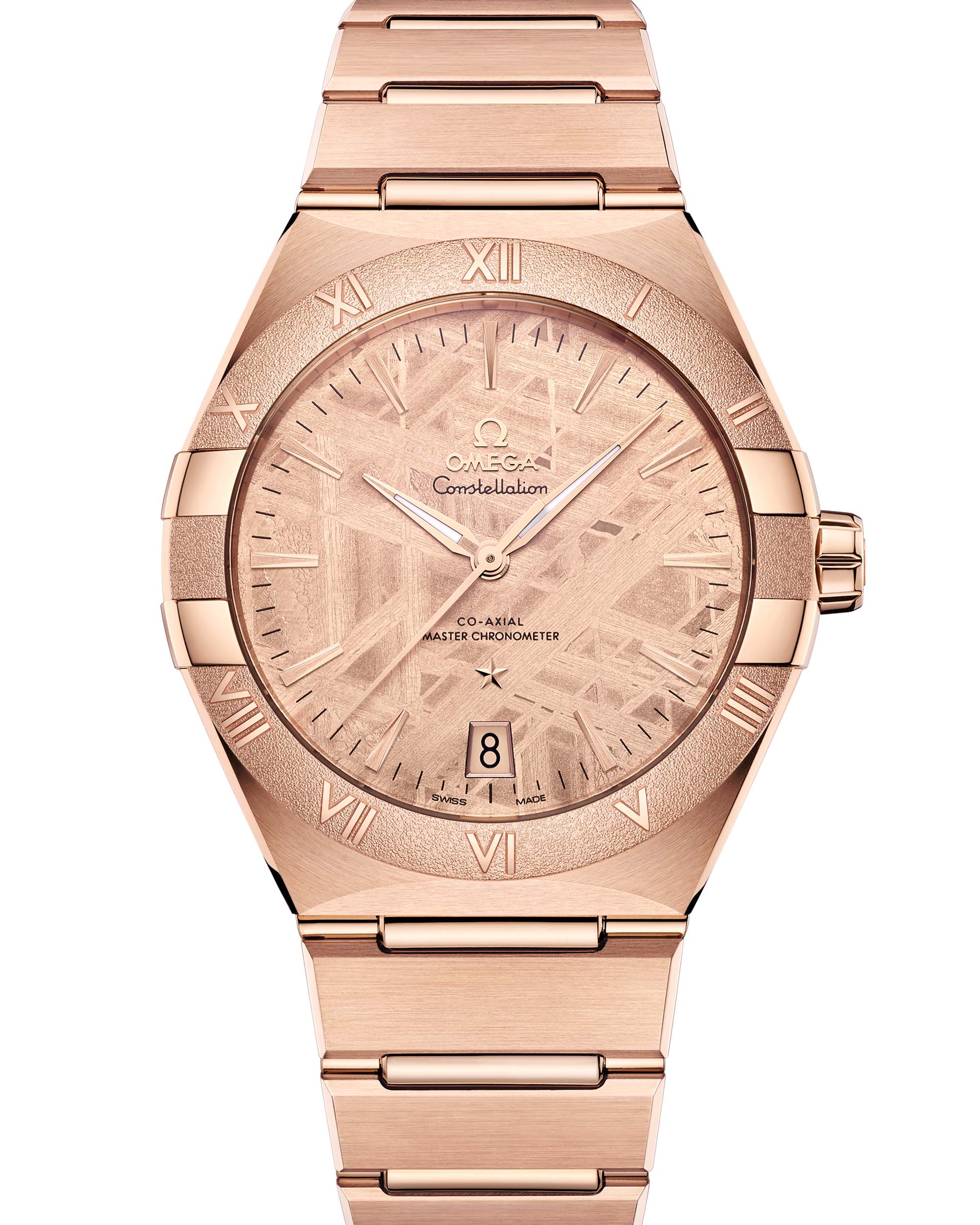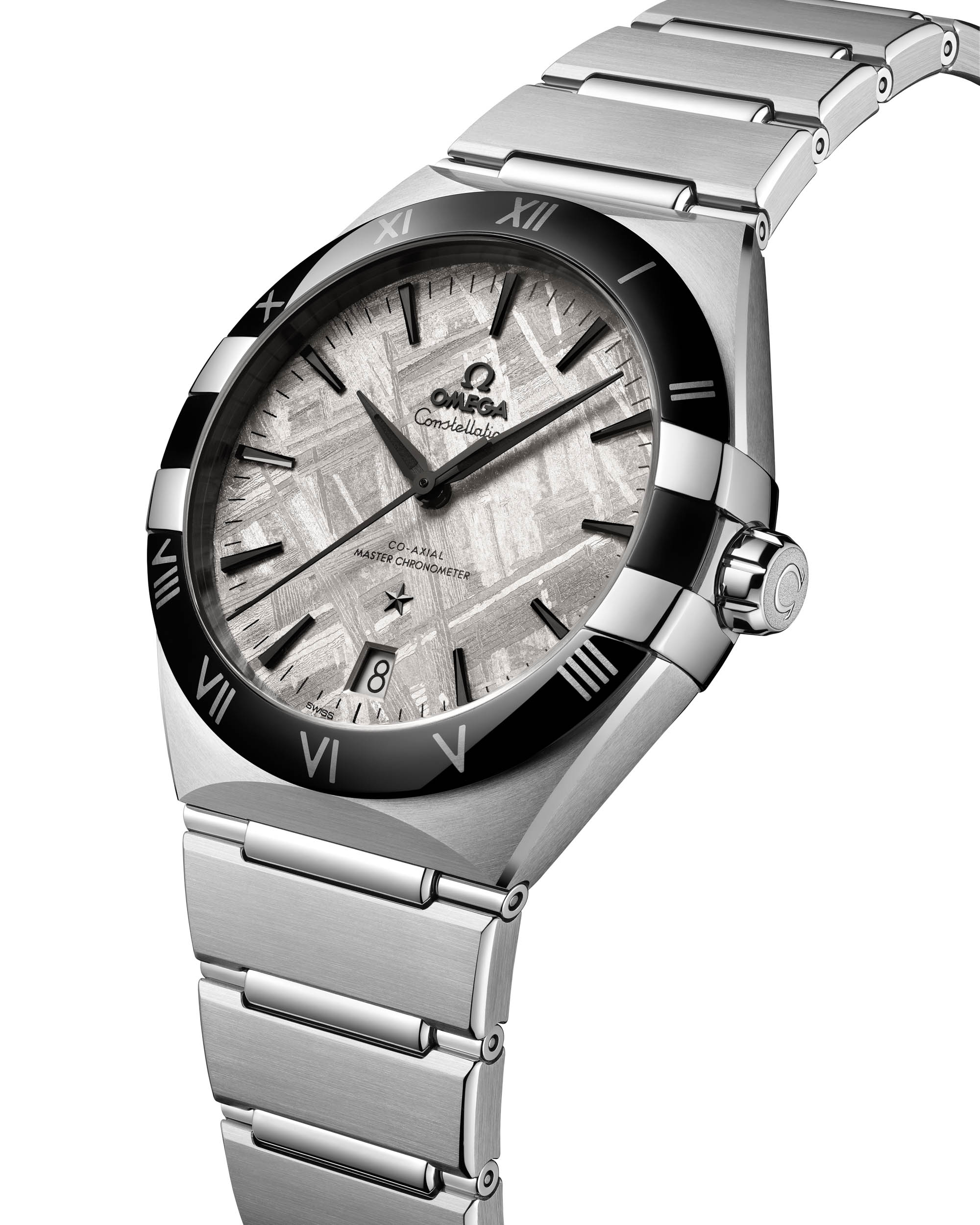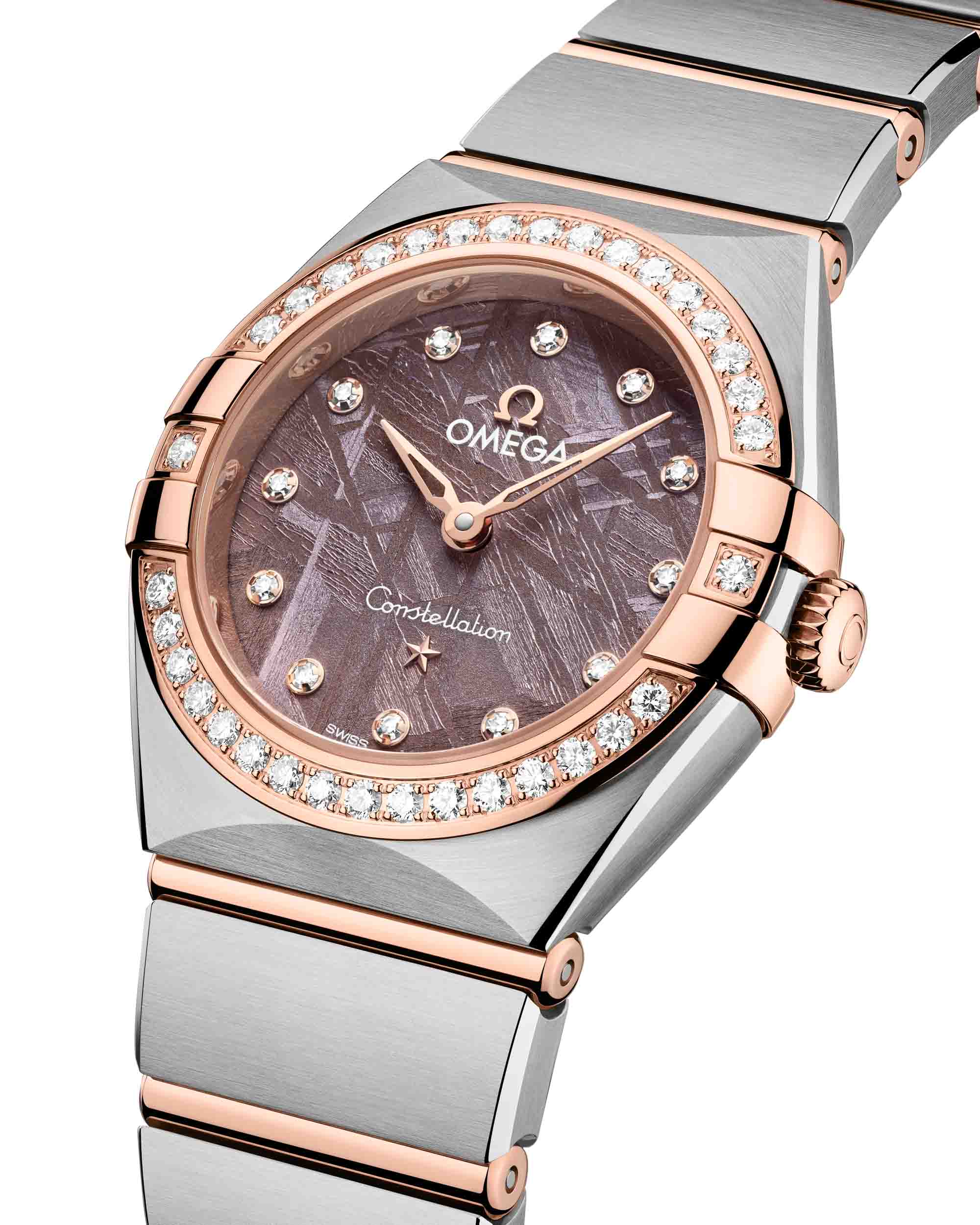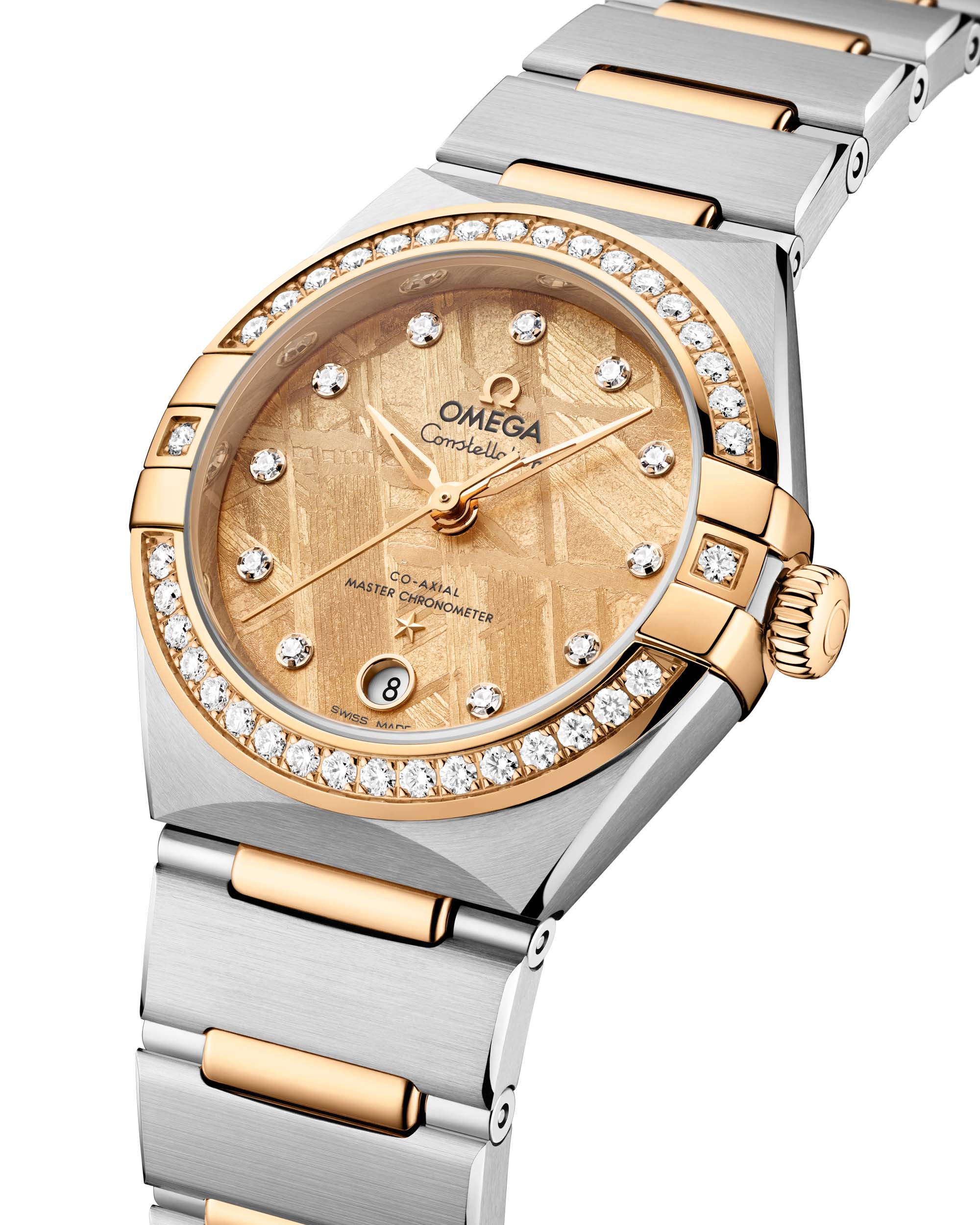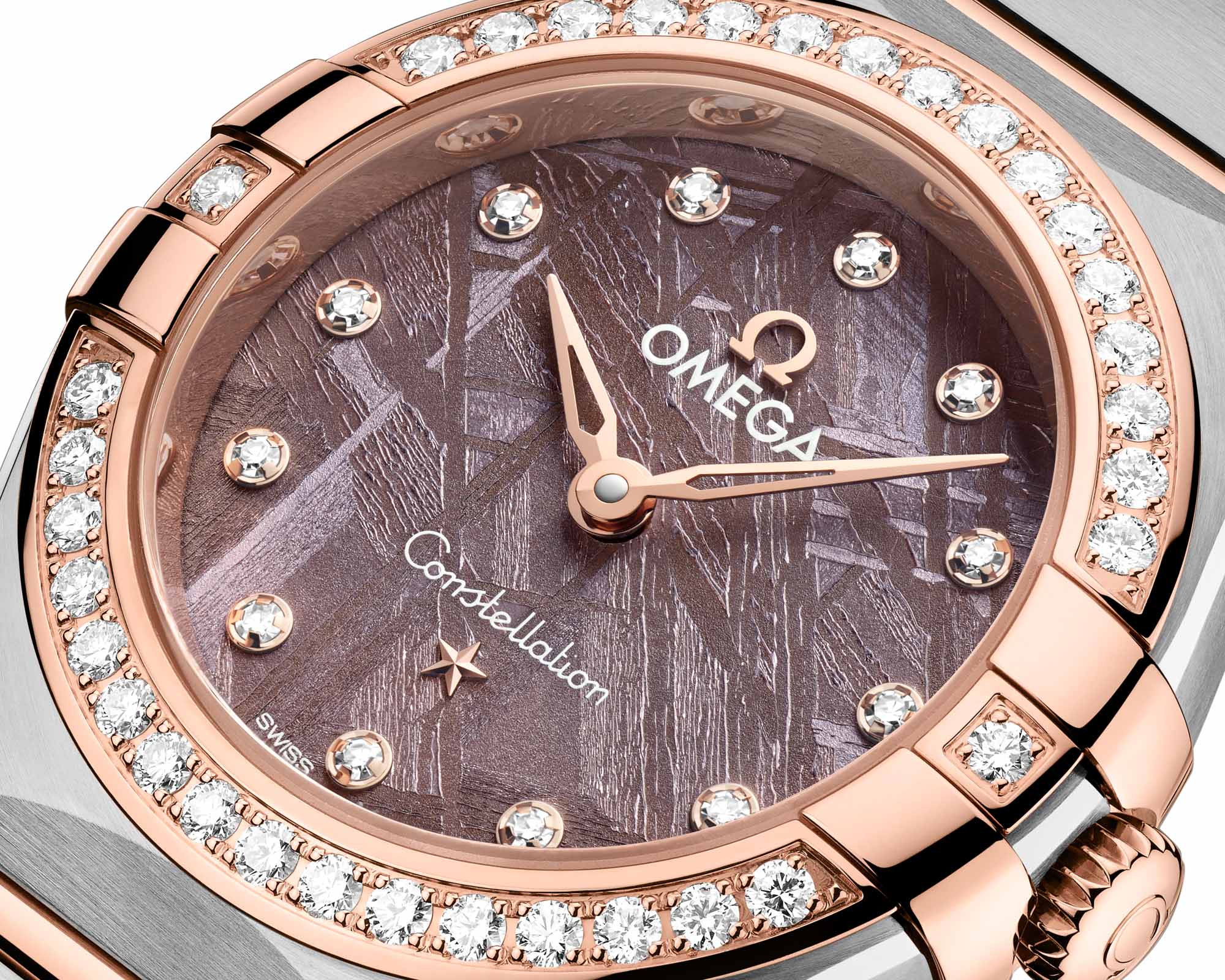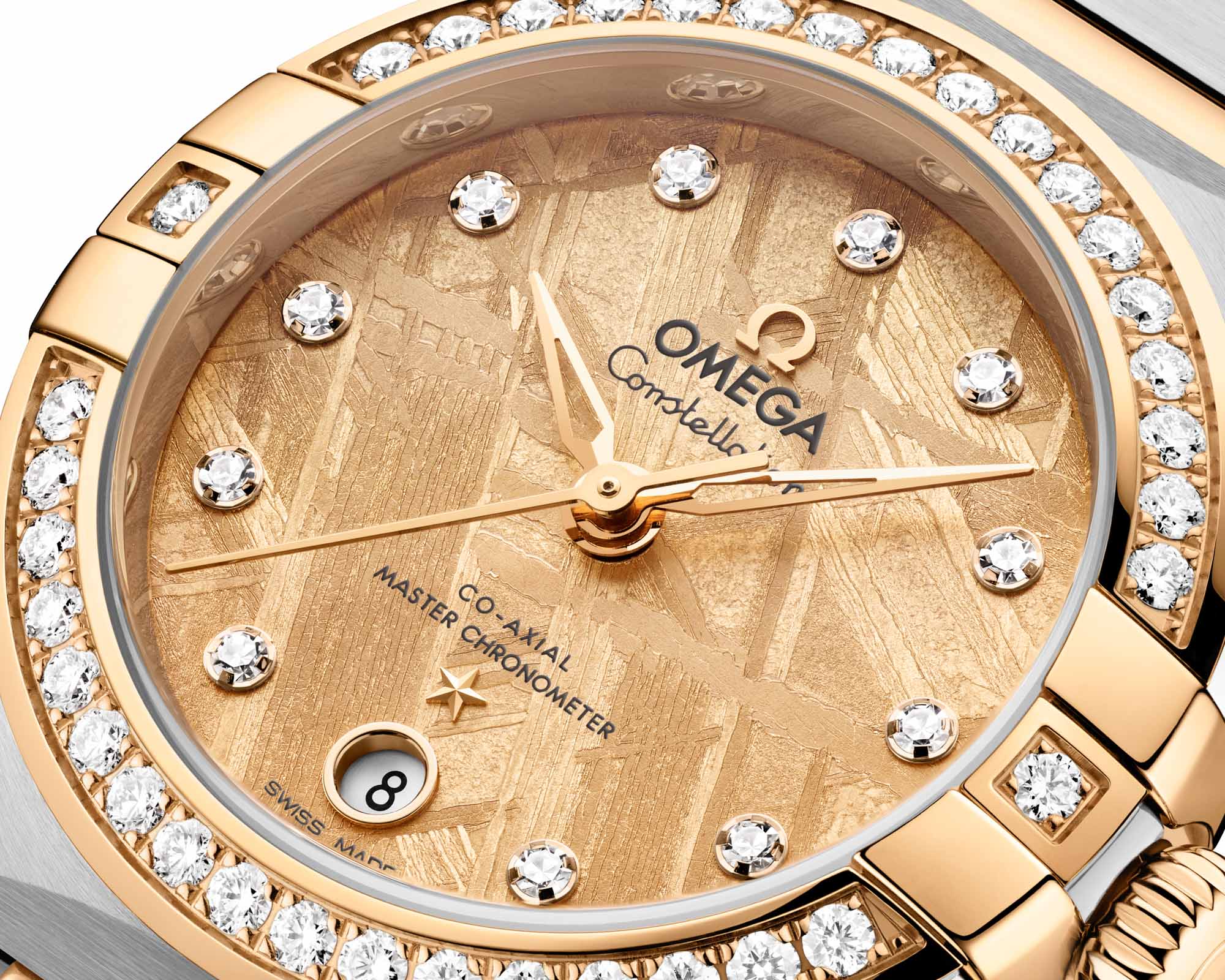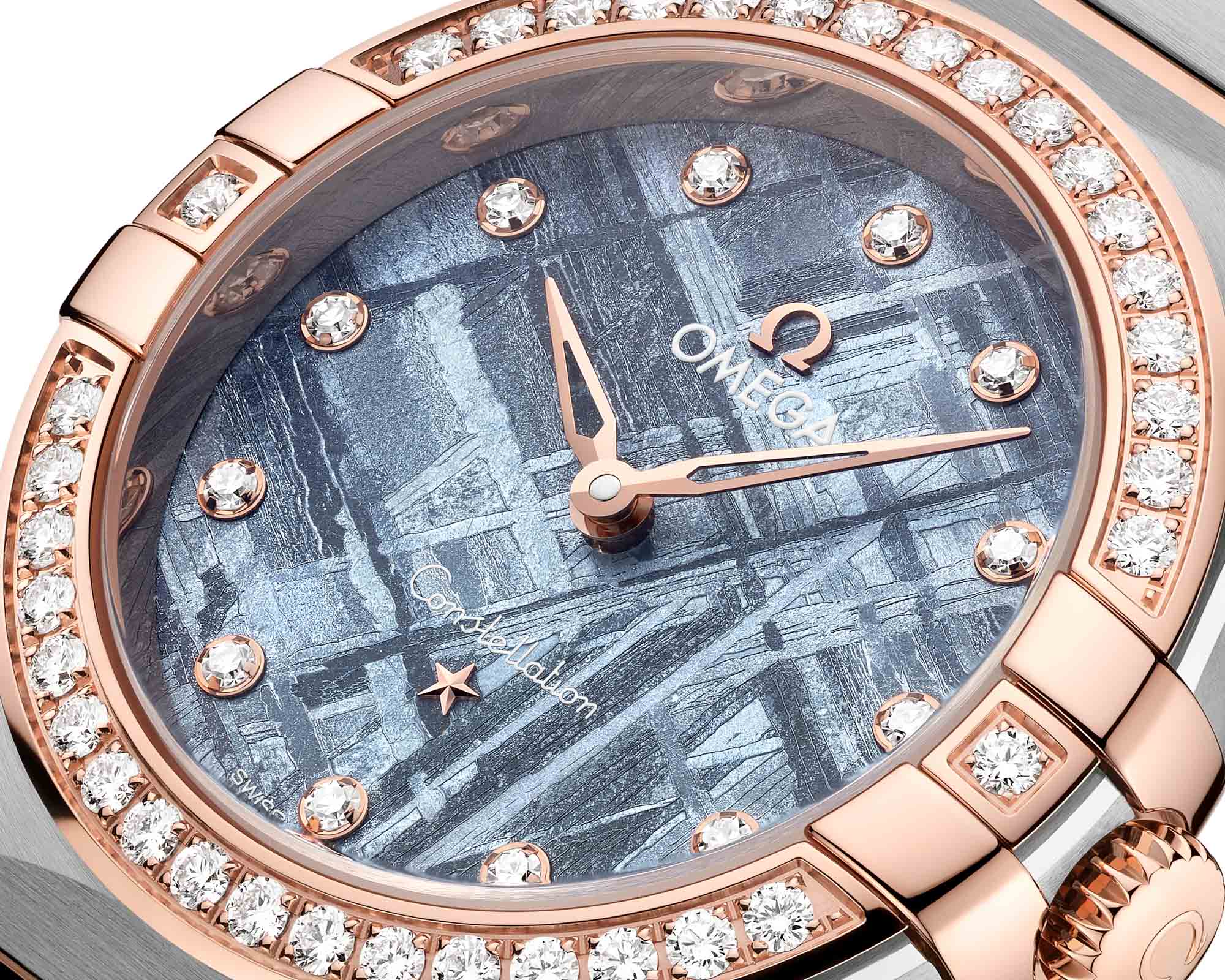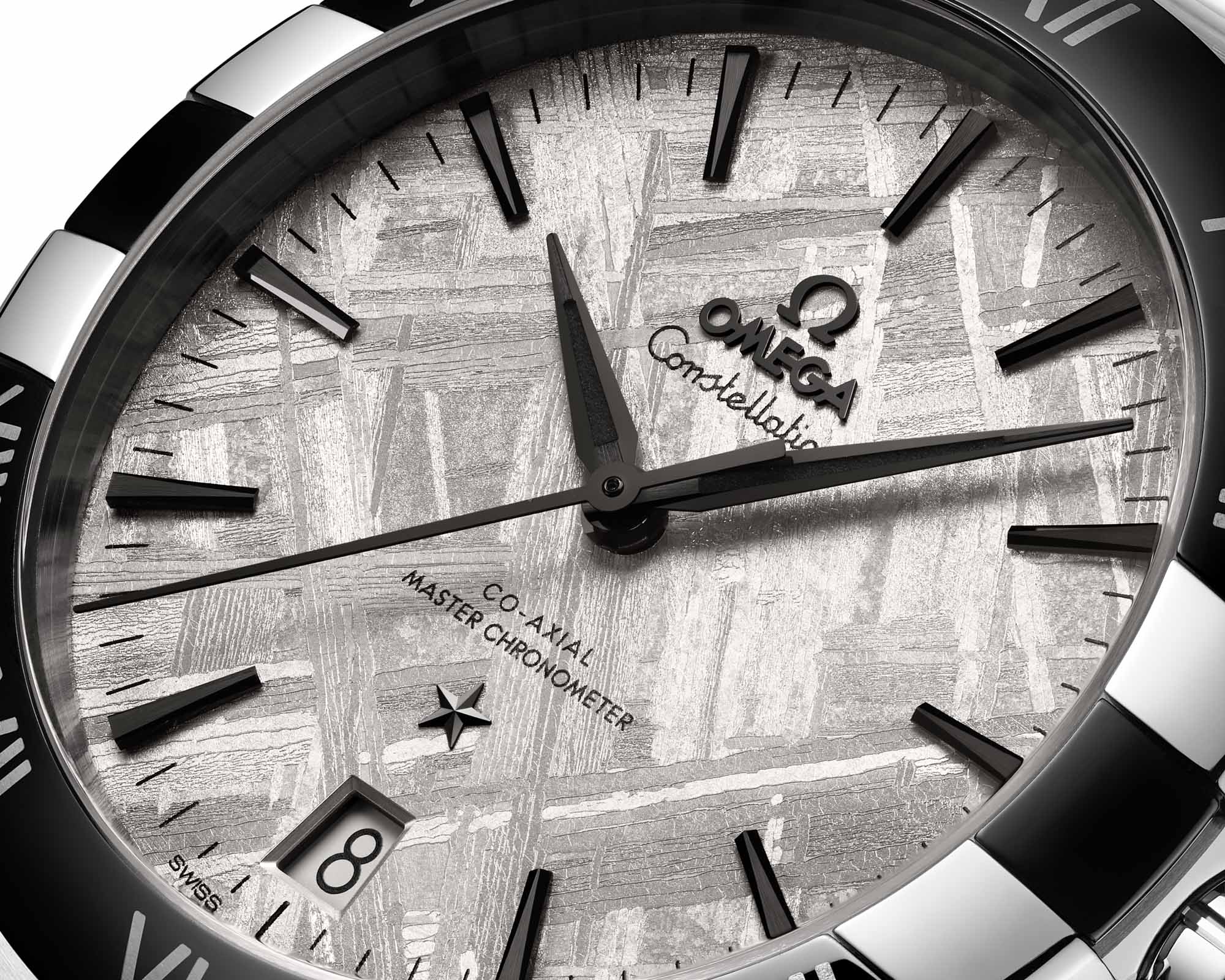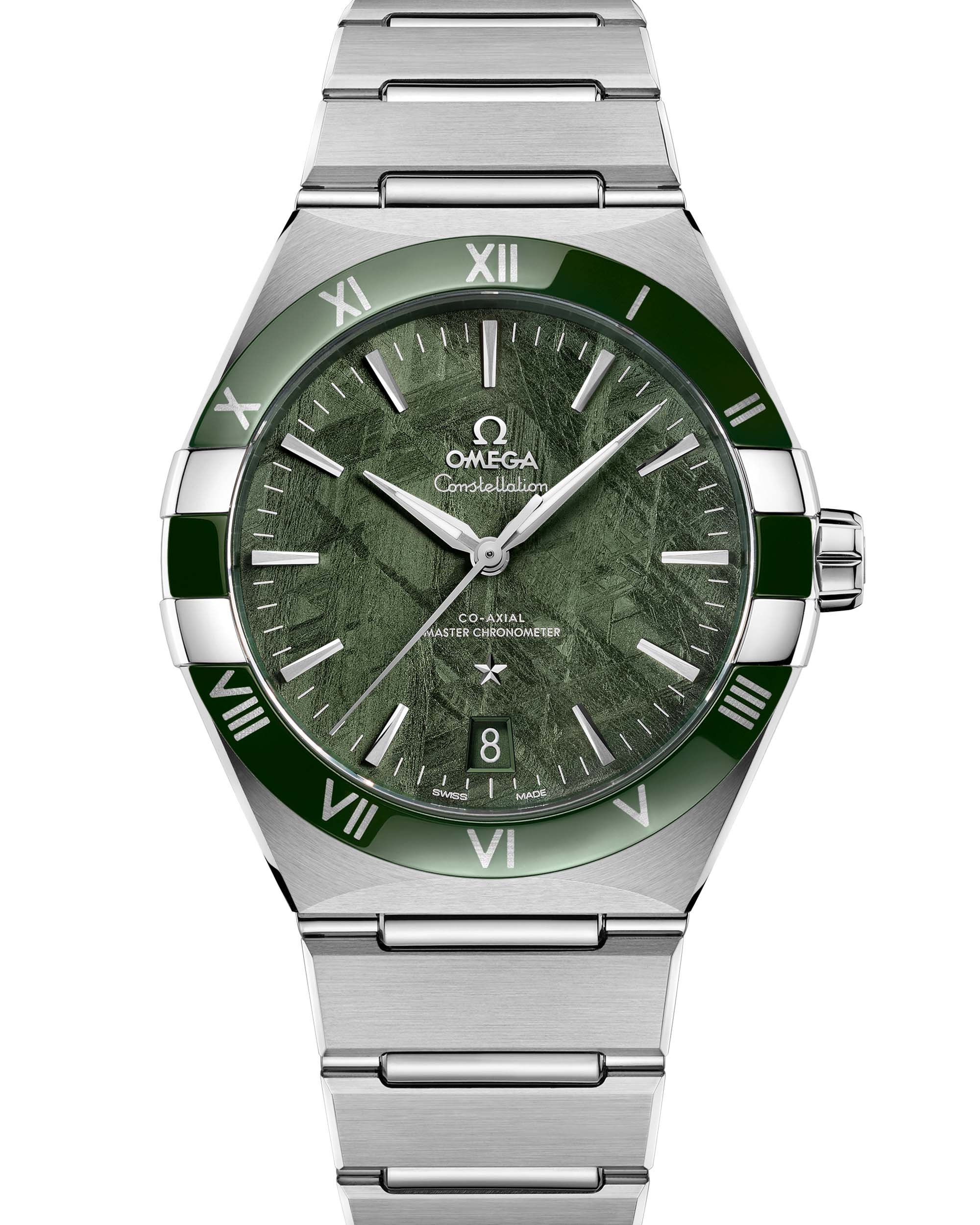
No one can ever say that Omega doesn’t give its customers an ample variety of options, and for its latest new release of 2024, the Swiss manufacturer has just announced 20 different Constellation models that all feature meteorite dials. Available in everything from stainless steel to solid gold with diamonds, the new assortment of Omega Constellation Meteorite watches span four different case sizes that range from 25mm to 41mm, and the meteorite dials fitted to many of the models have undergone a color treatment process to create an even wider variety of appearances among these latest additions to Omega’s catalog.
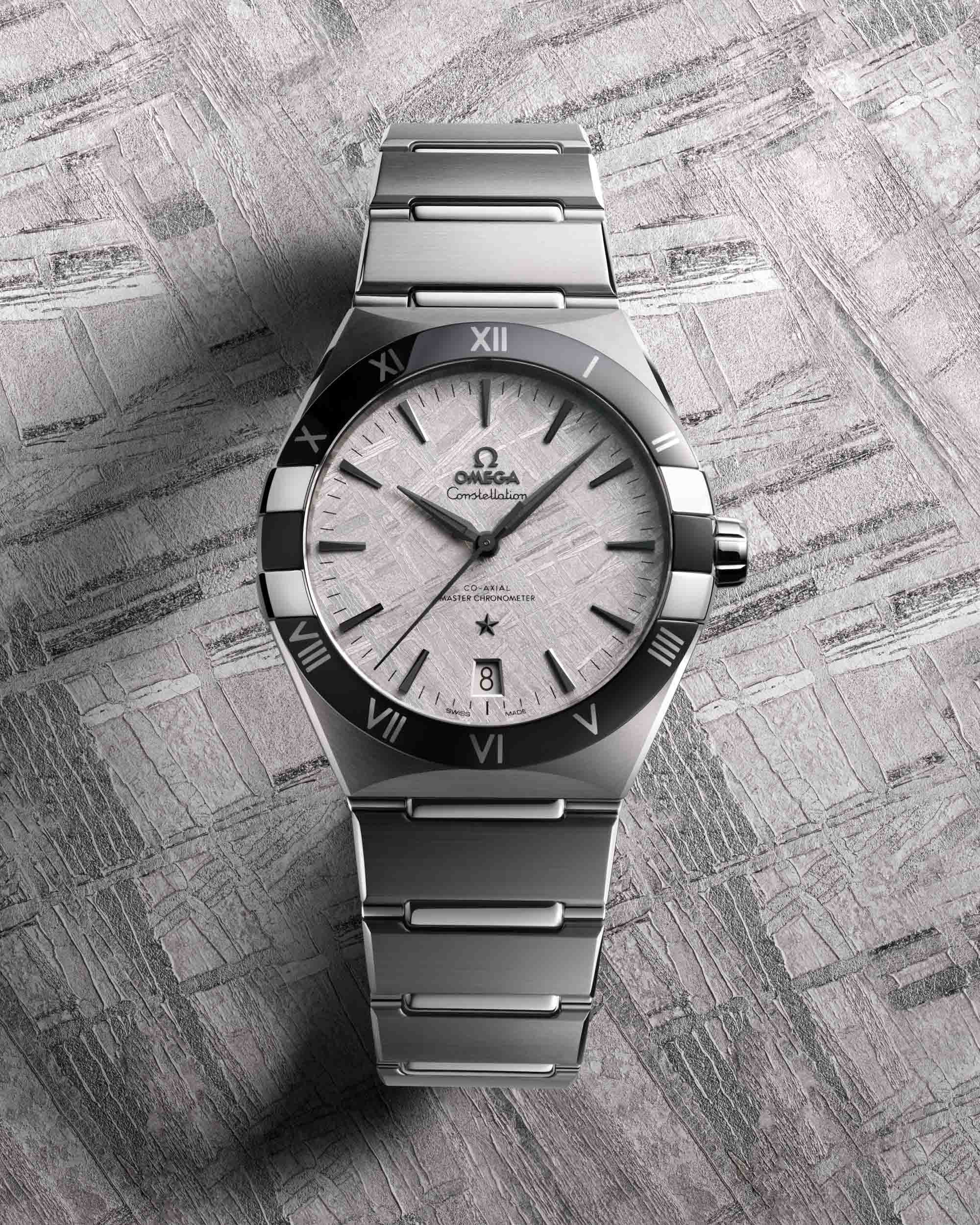
The twenty new Omega Constellation Meteorite watches are evenly spread across the four different case sizes (five watches per size), although the sizes themselves are rather heavily allocated towards the smaller side of the collection. The case sizes that are part of this latest launch of Constellation Meteorite models are 25mm, 28mm, 29mm, and 41mm; however, it is important to note that the various options are not just different sizes of the same watch. For example, while the smaller two options are powered by time-only quartz movements, the larger two receive self-winding mechanical calibers with date displays. Additionally, although all of the 25mm, 28mm, and 29mm models are fitted with diamond-set bezels and dials that have diamond hour markers, all of the 41mm Omega Constellation Meteorite watches have dials with standard applied baton indexes, and their diamond-free bezels are crafted from either titanium, 18k gold, or ceramic.
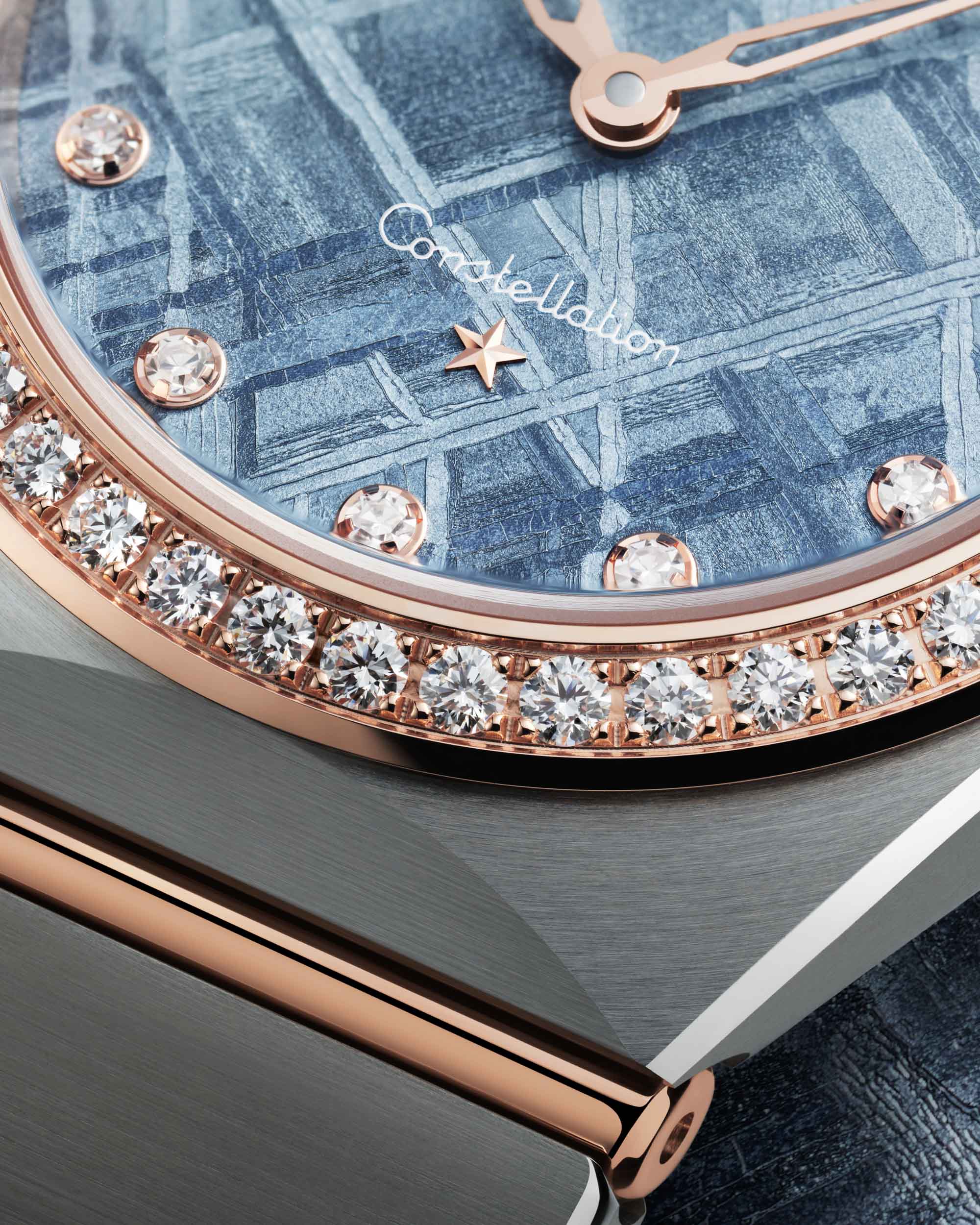
The five smallest Omega Constellation Meteorite watches measure 25mm in diameter by 8.1mm thick with a lug-to-lug profile of 27.5mm, and they are available in either stainless steel, 18k yellow gold, 18k Sedna gold, or two different two-tone variants, with each incorporating one of the different shades of gold. While all of the models are fitted with diamond-set bezels and meteorite dials with diamond hour markers, each of the five watches features a different color for its dial. The stainless steel version has a green dial, the yellow gold model receives a matching yellow gold dial, the Sedna gold variant is fitted with a dial that is a silvery rose color, and while the yellow gold two-tone model has a standard gray meteorite dial, the Sedna gold two-tone version has a dial that has been finished in a lilac color. Regardless of their differences, all of the 25mm Omega Constellation Meteorite watches are powered by the brand’s Caliber 4061 quartz movement, which offers a battery life of approximately 48 months.
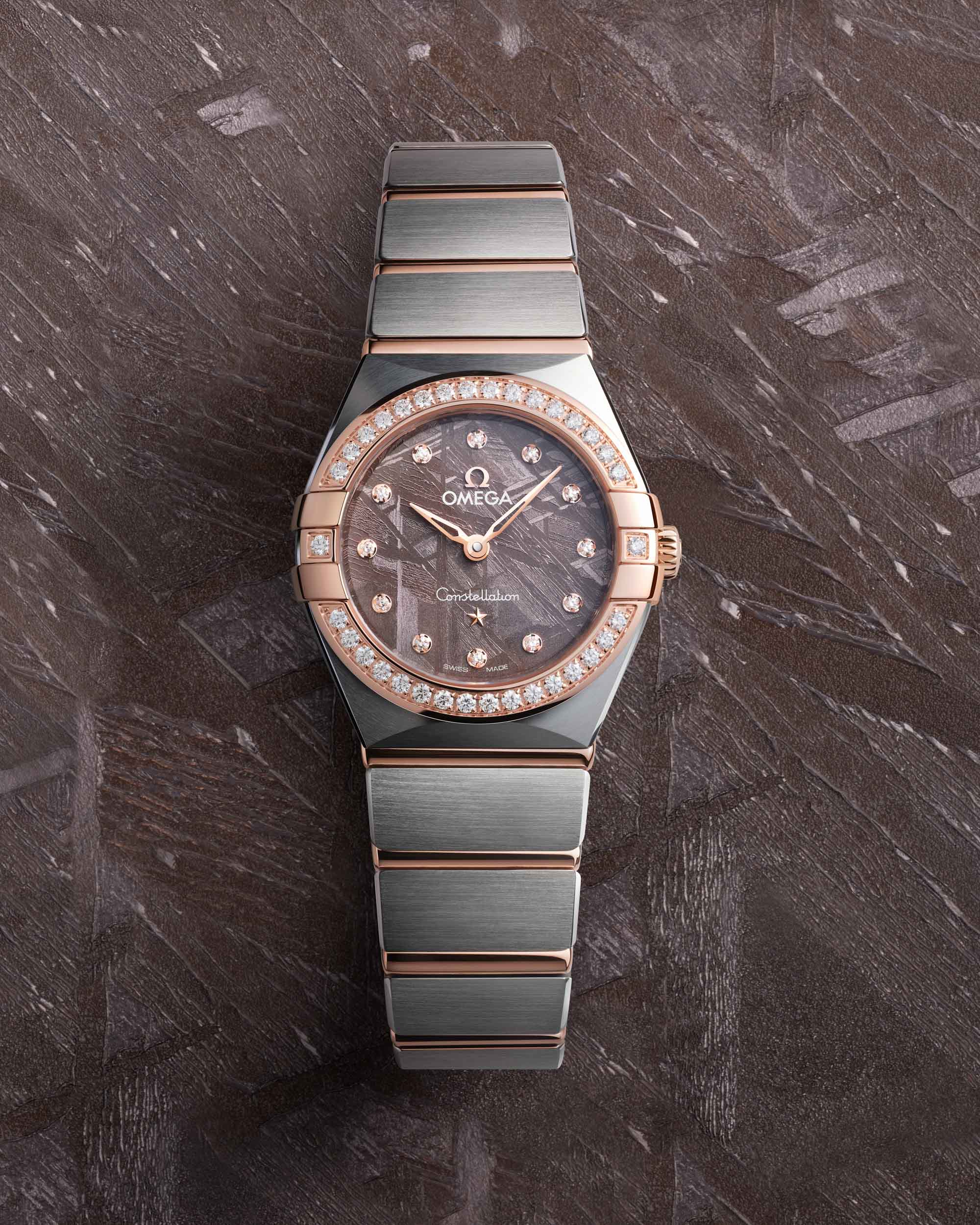
In many ways, the 28mm Omega Constellation Meteorite watches are essentially just larger versions of the 25mm models, although the dial colors are different from what can be found on their smaller siblings. Metal options remain the same as what is available for the five smallest models, although the cases are larger in every dimension possible, and they measure 28mm in diameter by 8.5mm thick with an overall lug-to-lug profile of 30.5mm. Additionally, just like their smaller counterparts, the 28mm Omega Constellation Meteorite models are powered by the Omega Cal. 4061 quartz movement, and they are all fitted with diamond-set bezels and meteorite dials that have diamond hour markers. As for the dial colors themselves, the stainless steel variant receives a lavender dial, the yellow gold model gets a linen-colored dial, the Sedna gold version has a standard gray meteorite dial, the yellow gold two-tone model gets paired with a green dial, and the Sedna gold two-tone version is fitted with a blue dial.
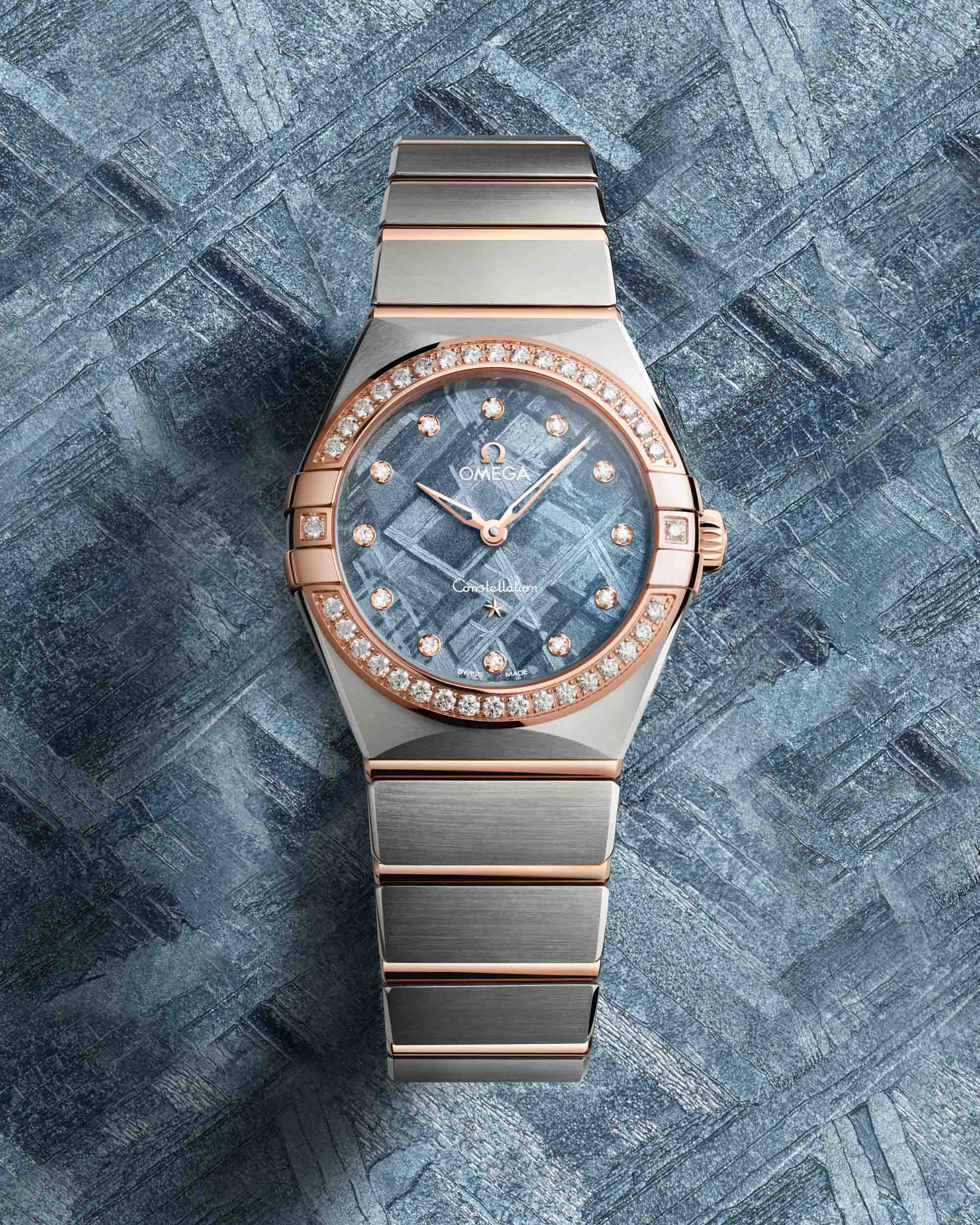
While they may be only a millimeter larger than their 28mm quartz counterparts and are offered in the same five metal configurations, the 29mm Omega Constellation Meteorite watches are completely different timepieces that are powered by the brand’s in-house Master Co-Axial automatic movements. The stainless steel and two-tone models receive the Cal. 8700, while the solid gold versions are fitted with the Cal. 8701, and while both movements offer the same fundamental design that runs at a frequency of 25,200vph (3.5 Hz) with a power reserve of approximately 50 hours, the Cal. 8701 is the luxury-oriented version that features its balance bridge and rotor crafted from 18k Sedna gold. In addition to being a millimeter wider, these 29mm Constellation Meteorite watches are also slightly longer with a lug-to-lug profile of 31.2mm, although the greatest difference in size is in regards to their height, which now comes in at 12mm to house their self-winding movements.
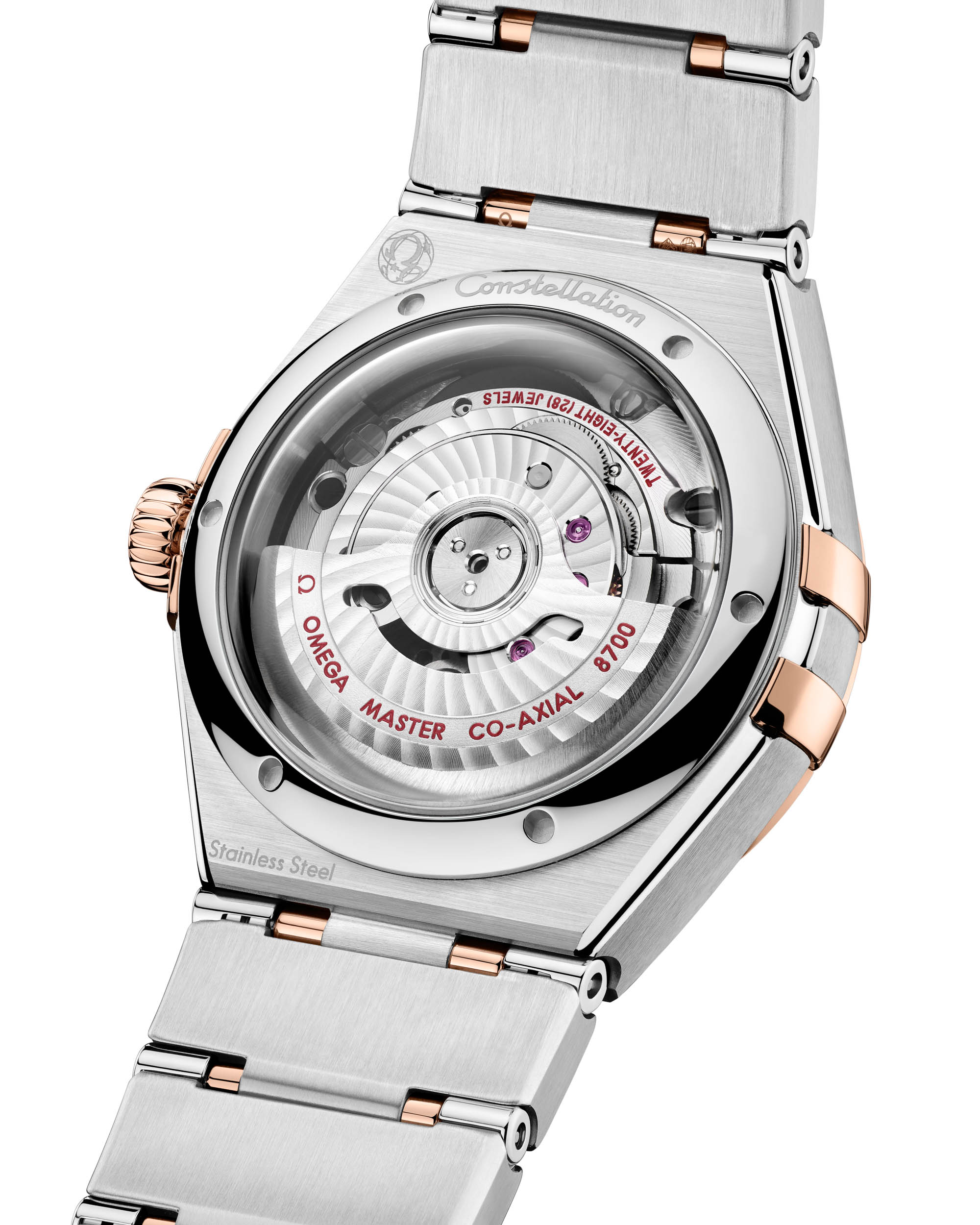
Once again, the various colors of the meteorite dials have been switched up for the 29mm Omega Constellation Meteorite watches. The stainless steel model has a purple dial, the yellow gold version receives a green dial, the Sedna gold watch is fitted with a pink gold dial, and while the yellow gold two-tone model has a yellow gold dial to match its golden case components, the Sedna gold two-tone variant receives a standard gray meteorite dial to complement the stainless steel parts of its case. Additionally, while the hour markers on the dials of the 29mm Constellation Meteorite watches also have diamonds for their hour markers, the 6 o’clock index has been swapped out for a circular date window, and two additional lines of text have been added to the surface of the dials to denote the Co-Axial Master Chronometer movements that can be found inside their cases.
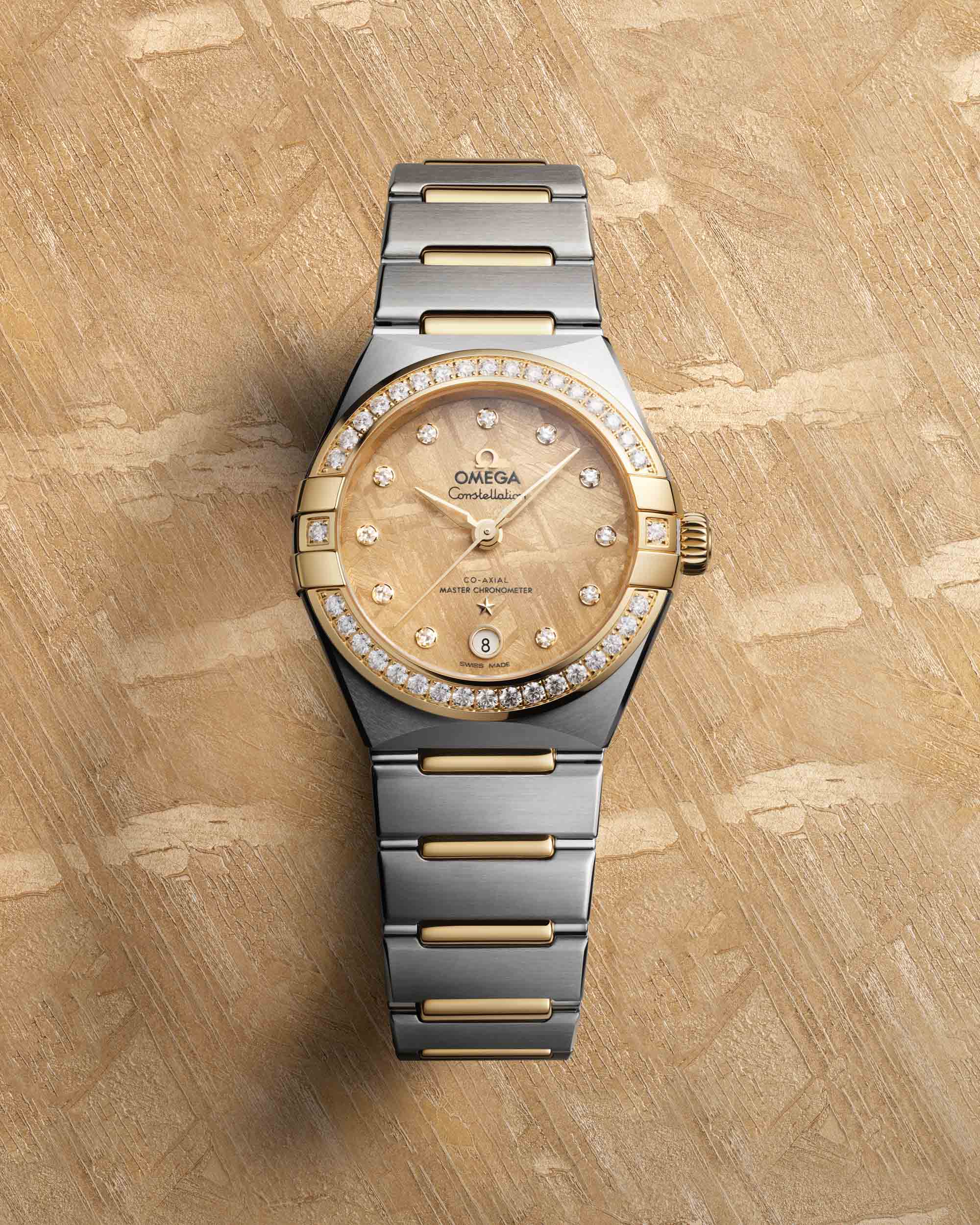
Aside from being noticeably larger than their siblings at 41mm in diameter by 13.5mm thick with a lug-to-lug profile of 44mm, the five largest Omega Constellation Meteorite watches also exist in different material options than what can be found among the three sizes that make up the rest of the series. While two of the five models are crafted from either 18k yellow or Sedna gold, the other three appear in stainless steel, and all five of the 41mm Constellation Meteorite watches are fitted with bezels made from different materials. The two solid gold models have bezels crafted from the same shade of 18k gold that is used for their cases; one of the stainless steel models has a grade 5 titanium bezel; and while one of the remaining stainless steel watches has a black ceramic bezel, the other has its bezel made from green ceramic. Additionally, unlike the smaller models that have diamonds on both their dials and bezels, all of the 41mm Constellation Meteorite watches are entirely devoid of diamonds, and they instead feature dials with classic baton indexes, along with the Constellation collection’s signature Roman numerals appearing on their bezels.
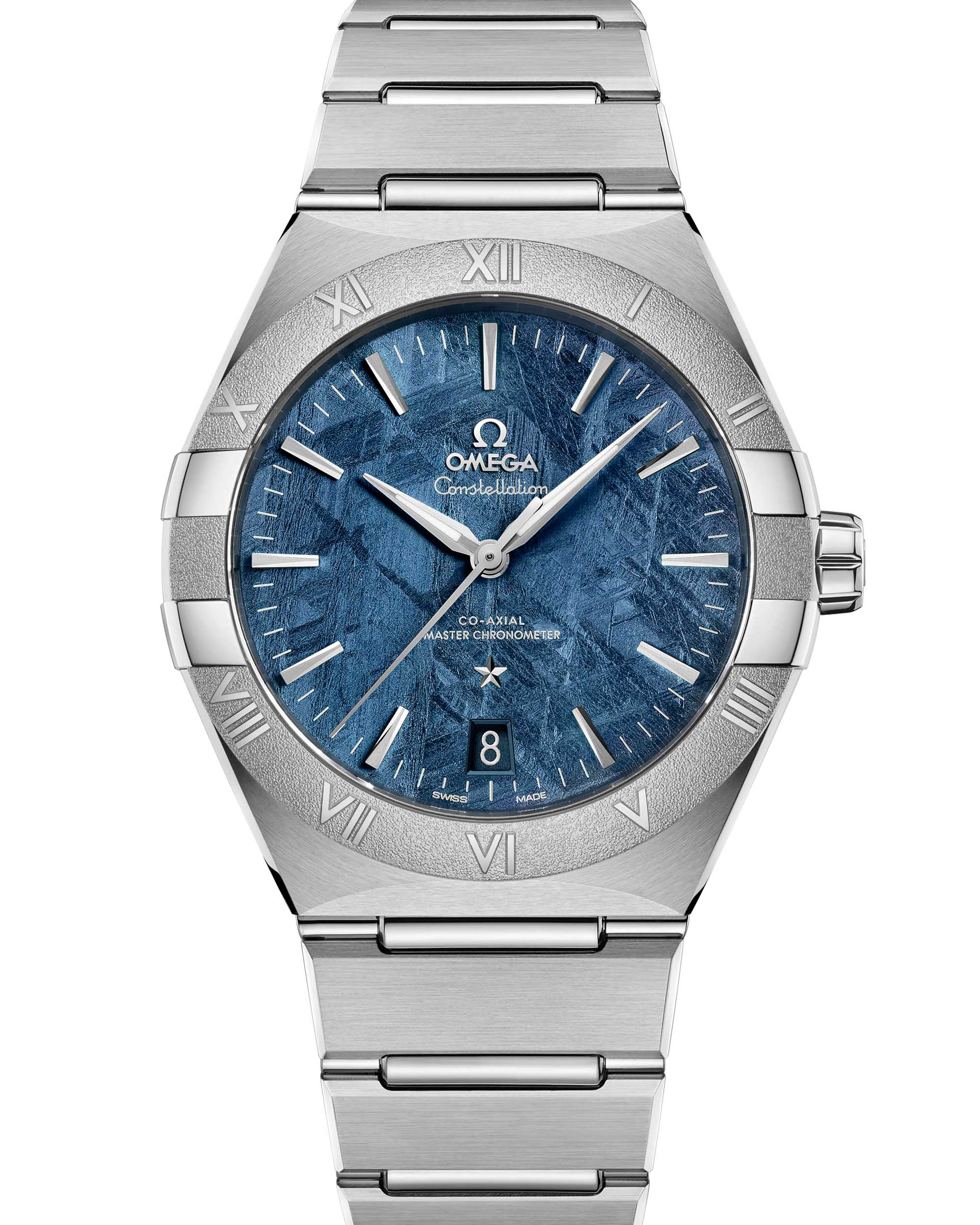
As for the dial colors of the 41mm Omega Constellation Meteorite watches, again we see differences between what can be found on these models and what is fitted to the three smaller sizes from the collection. The stainless steel model with a green ceramic bezel is fitted with a matching green dial, while the version with a black ceramic bezel receives a standard gray meteorite dial, and the final stainless steel model with a titanium bezel gets paired with a blue dial. Meanwhile, the two solid gold models each have a meteorite dial that is finished in the same hue of gold as their case to create a highly luxurious monochromatic appearance. Similar to the 29mm models, the 6 o’clock index on the dial of the 41mm Constellation Meteorite watches has been swapped out for a date window, although the aperture itself appears as a trapezoid shape and it reveals a calendar disc that has been color-matched to the surface of its respective meteorite dial.
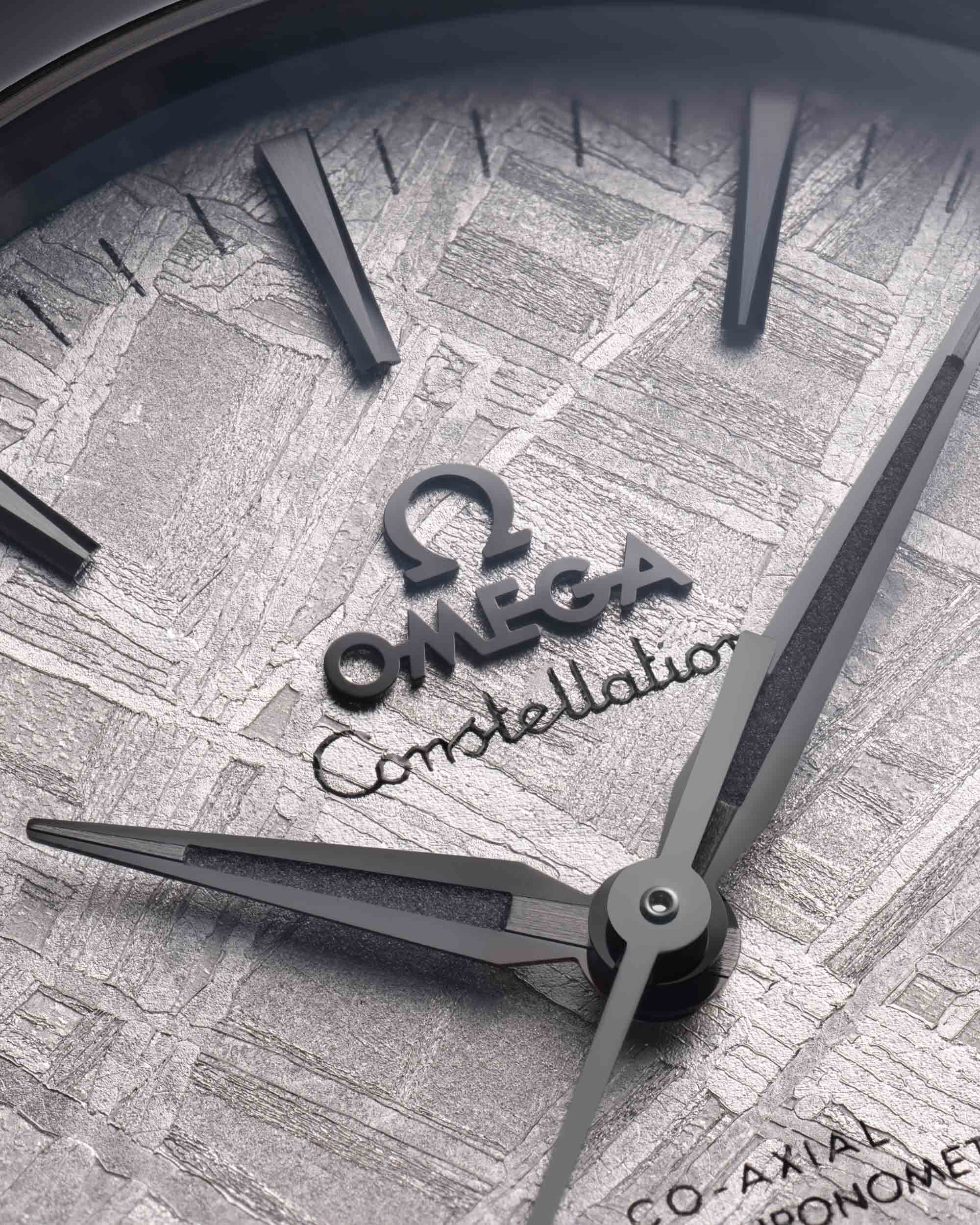
Similar to the smaller automatic models, two different movements are used to power the 41mm Constellation Meteorite watches, and while the Cal. 8900 is the standard version that is fitted to the trio of stainless steel models, the two solid gold versions receive the Cal. 8901, which is the luxury-oriented variant that features a Sedna gold balance bridge and rotor. Since the the Cal. 8900 and Cal. 8901 are identical in terms of their underlying design, both movements run at a frequency of 25,200vph (3.5 Hz) with a power reserve of approximately 60 hours, and just like the rest of Omega’s Master Chronometer movements that are certified by METAS, the various calibers that appear inside the new Constellation Meteorite watches are all resistant to magnetic fields in excess of 15,000 gauss. Additionally, while Omega produces some versions of the Constellation that are fitted with leather and rubber straps, all twenty of the new Omega Constellation Meteorite models are paired with the collection’s signature integrated flat-link bracelet that closes with a butterfly-style folding clasp.
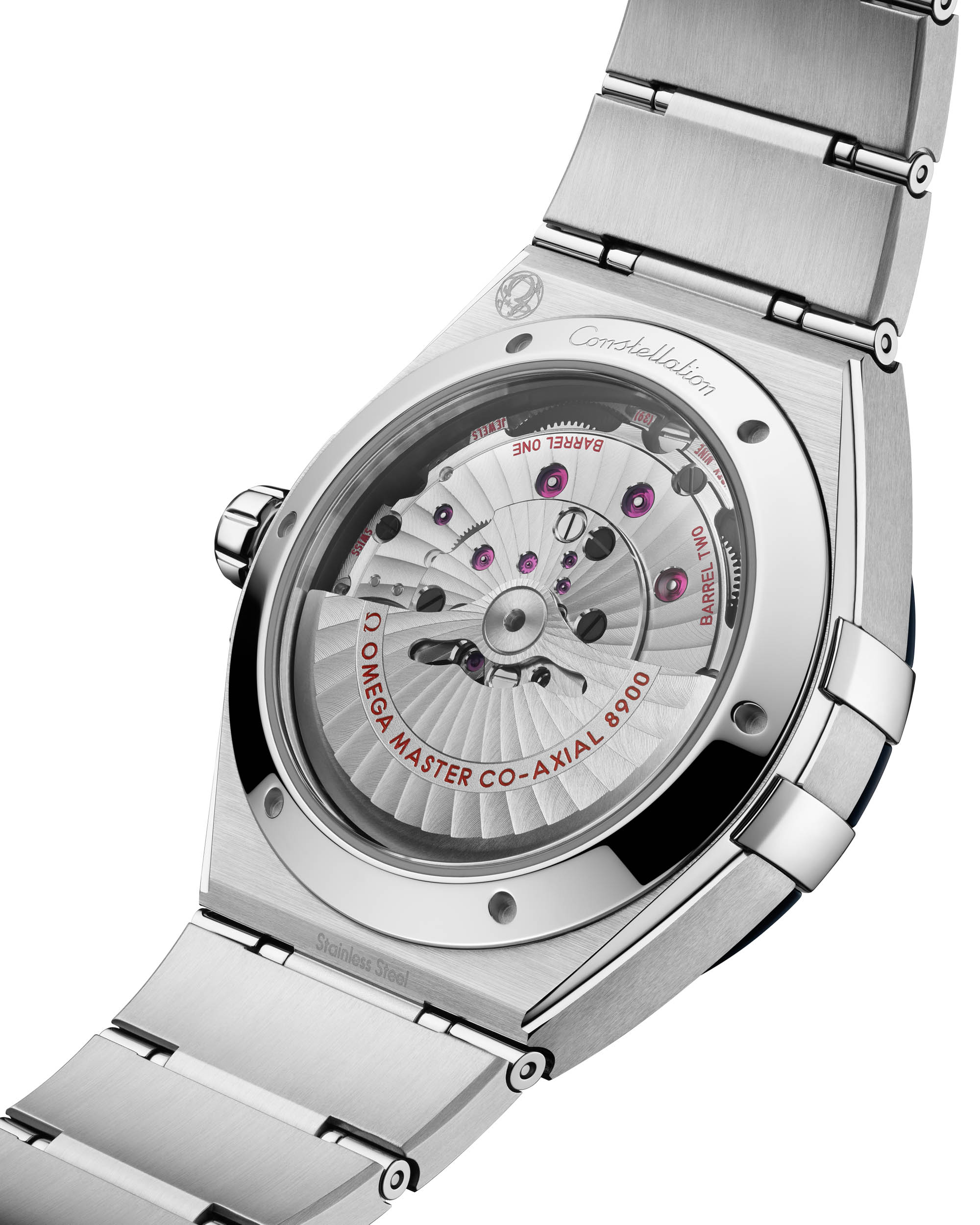
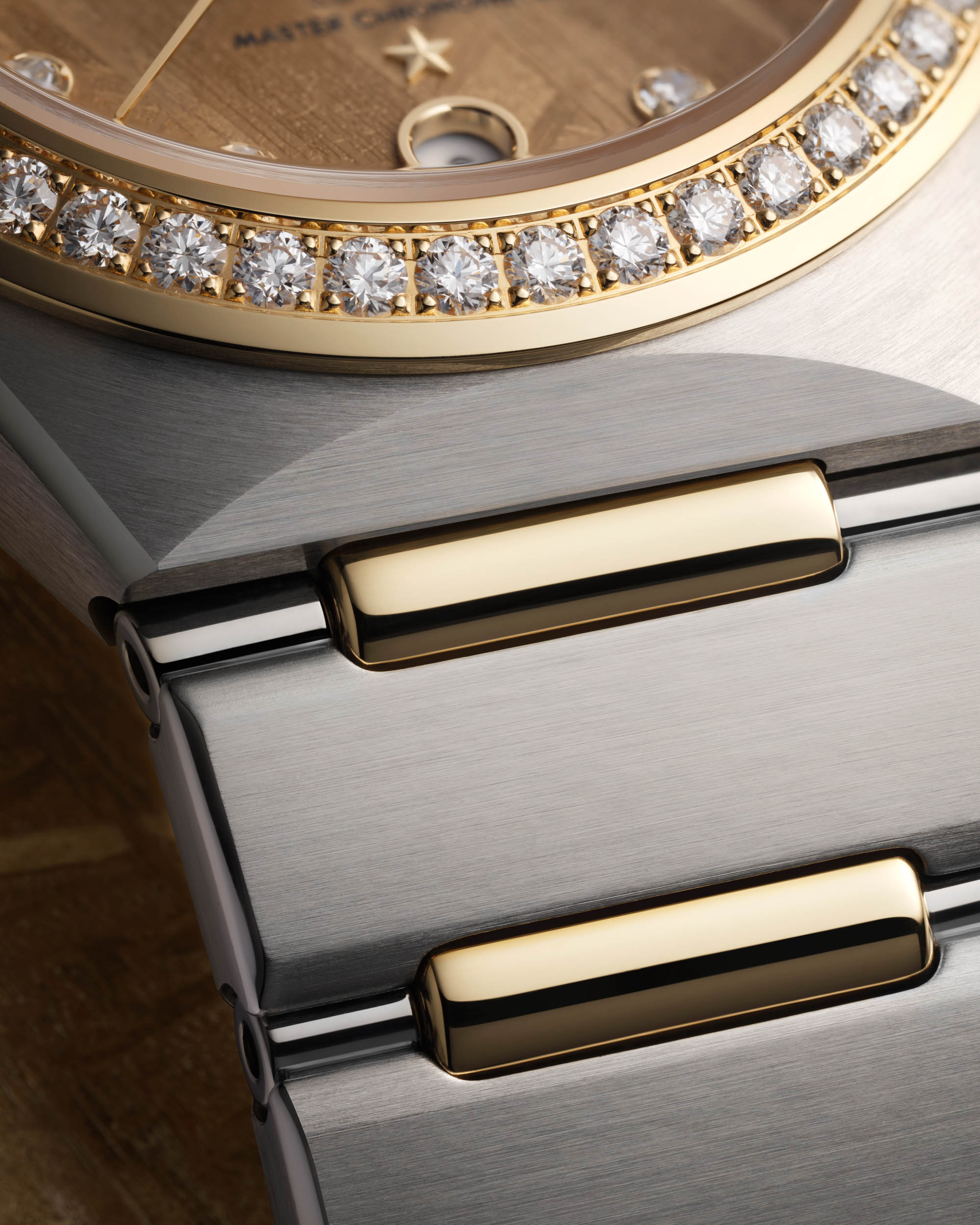
Regardless of case size or materials, all of the new Omega Constellation Meteorite watches feature domed sapphire crystals above their dials with anti-reflective treatment applied to both inner and outer surfaces. However, while the two smaller quartz models are fitted with solid casebacks adorned by the collection’s signature observatory emblem, the 29mm and 41mm Constellation Meteorite models receive display-style casebacks to showcase their internal self-winding movements, and they also benefit from a slight increase in water resistance. Both the 25mm and 28mm quartz models have a fairly standard depth rating of 30 meters to protect against incidental contact, although the larger two Constellation Meteorite watches offer a bit more protection with 50 meters of water resistance. That said, I can’t imagine anyone is buying one of these meteorite dial watches specifically to wear in the water on a regular basis, so the additional protection provided by the larger automatic models really just provides their owners with a bit more peace of mind during daily moisture contact.
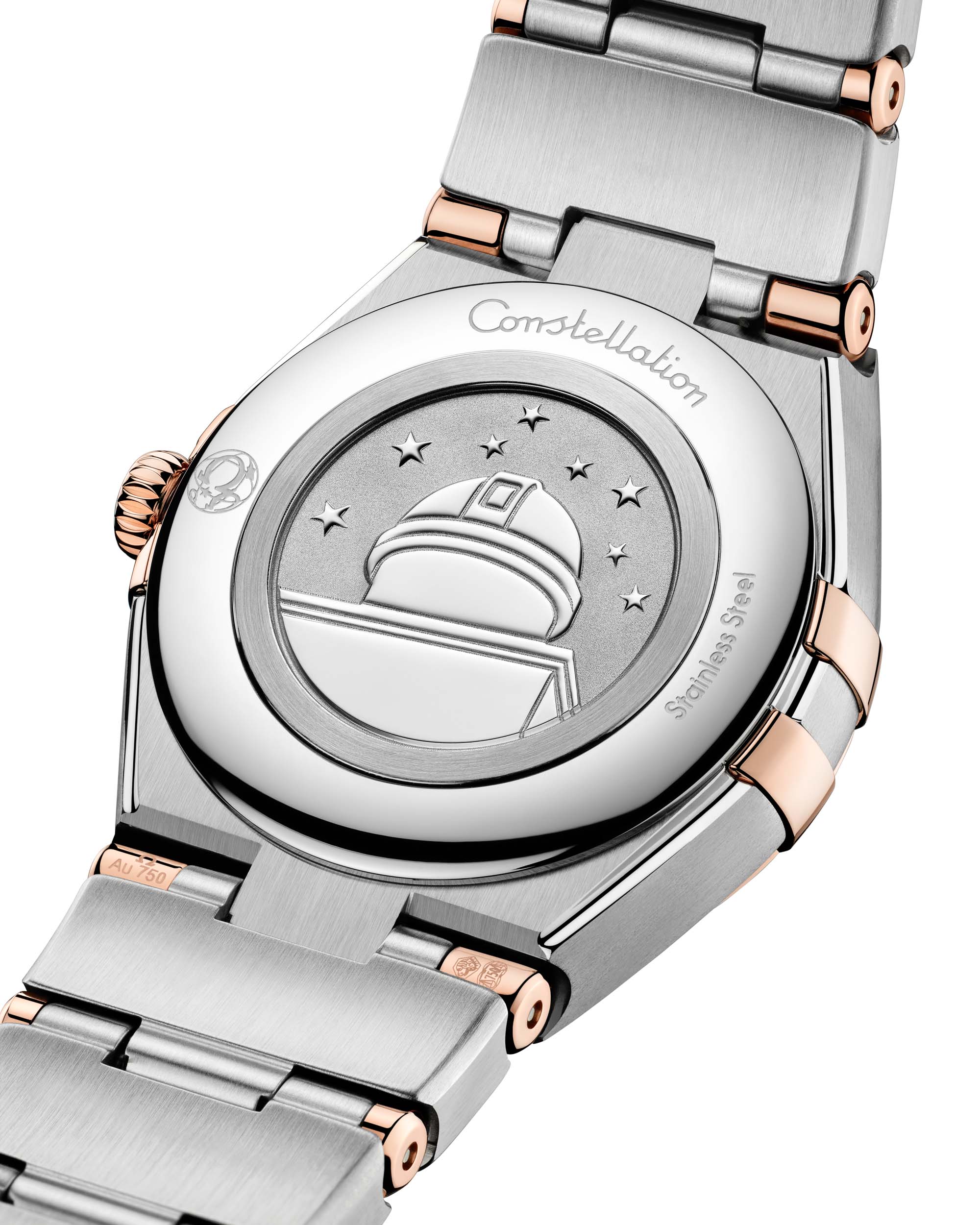
While the various Omega Constellation Meteorite watches with 25mm, 28mm, and 29mm cases are largely just dial variations of existing models from the brand’s current lineup, the 41mm watches are actually entirely new configurations for the collection. Previously, the 41mm Constellation models (the largest case size) were only available with either leather or rubber straps, so the bracelets on the 41mm models are a new addition that has been introduced with this launch. Additionally, both full-gold and titanium bezels are also new to the 41mm Constellation format, as all of the existing 41mm models from the series were previously fitted with either stainless steel or ceramic bezels. A bracelet-equipped version of the 41mm Constellation simply makes a lot of sense, and I can only imagine that Omega is choosing to introduce this new format with these premium meteorite dial models, before expanding upon it to create the core-collection offerings.
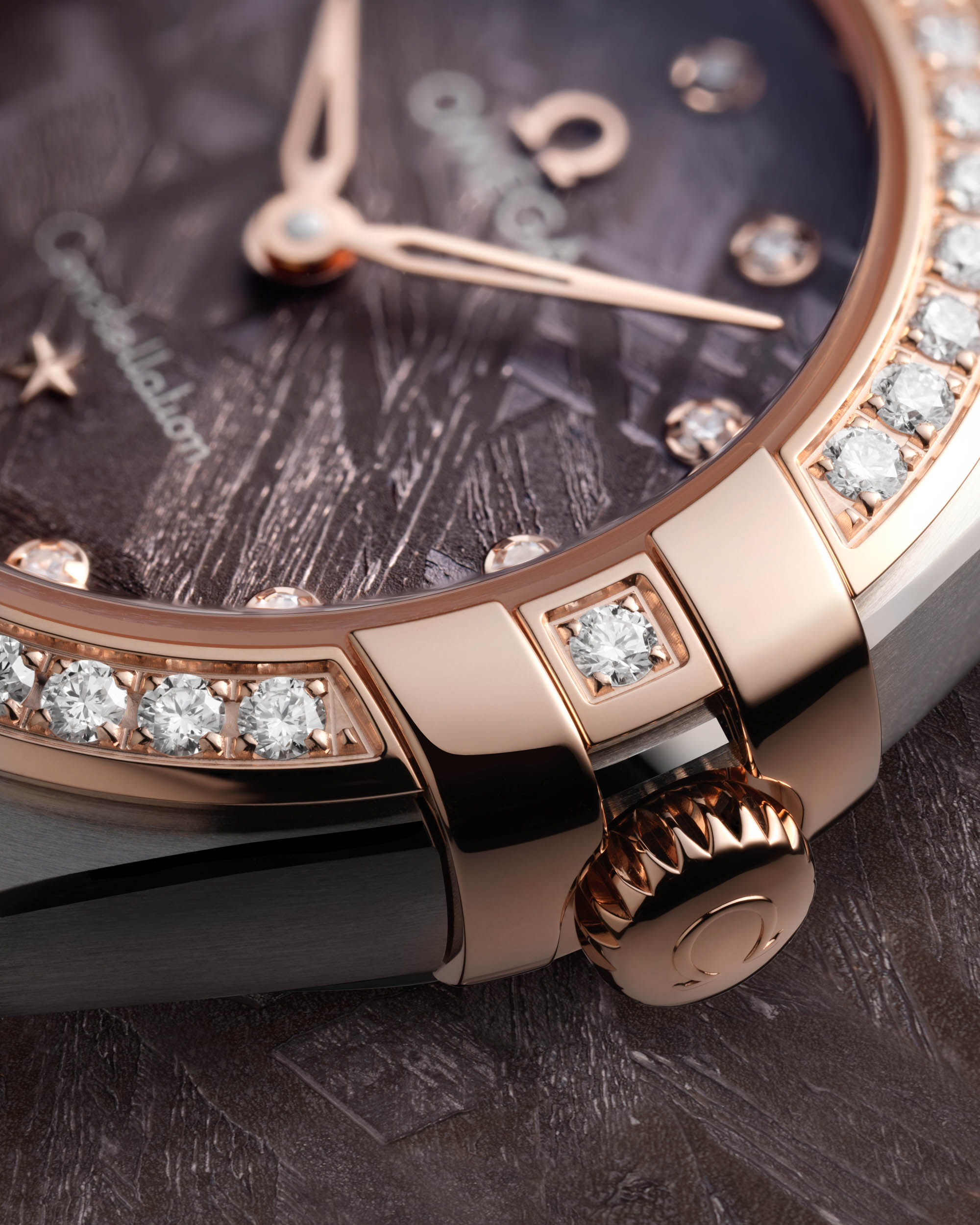
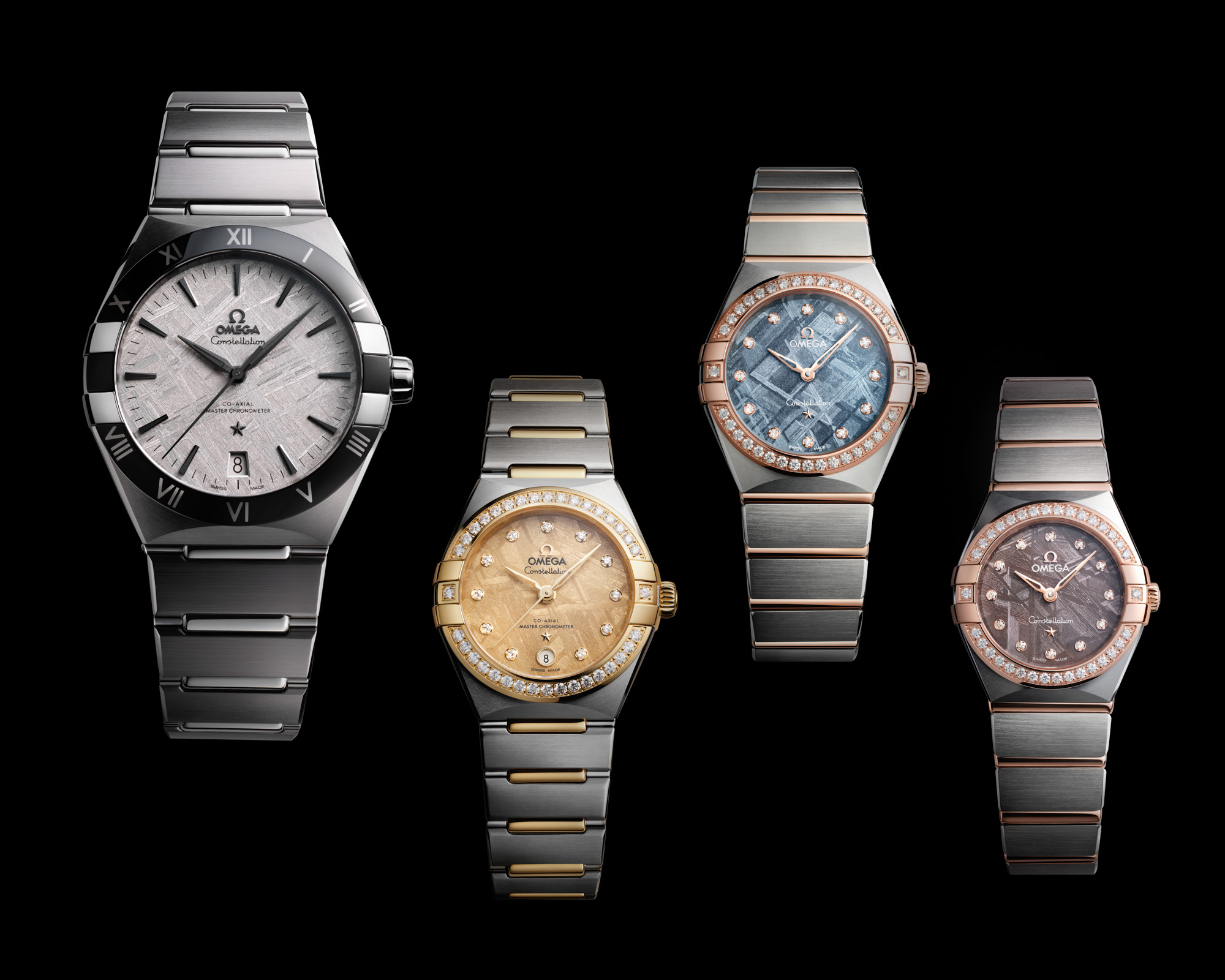
As you might expect, the twenty new Omega Constellation Meteorite watches occupy an incredibly wide range of prices. The absolute least expensive offering is the 25mm stainless steel model at $8,400 USD, while the most expensive are the two solid gold 41mm watches, which are both priced at $42,400 USD. Given that the vast majority of the new Constellation Meteorite watches are either crafted from solid gold or feature diamonds set into both their dials and bezels, only five of the twenty new models are priced below the five-figure mark, although three of these are the 41mm stainless steel models, and I imagine that these watches will likely be the most compelling options for collectors. The version with a titanium bezel is priced at $9,300 USD, while its two siblings with ceramic bezels are priced at $9,700 USD, and although this is undeniably quite a lot of money to spend on a stainless steel time-and-date watch, these prices also seem quite modest when you compare them to their precious metal and diamond-set counterparts. For more information on the Omega Constellation Meteorite watches, please visit the brand’s website.

